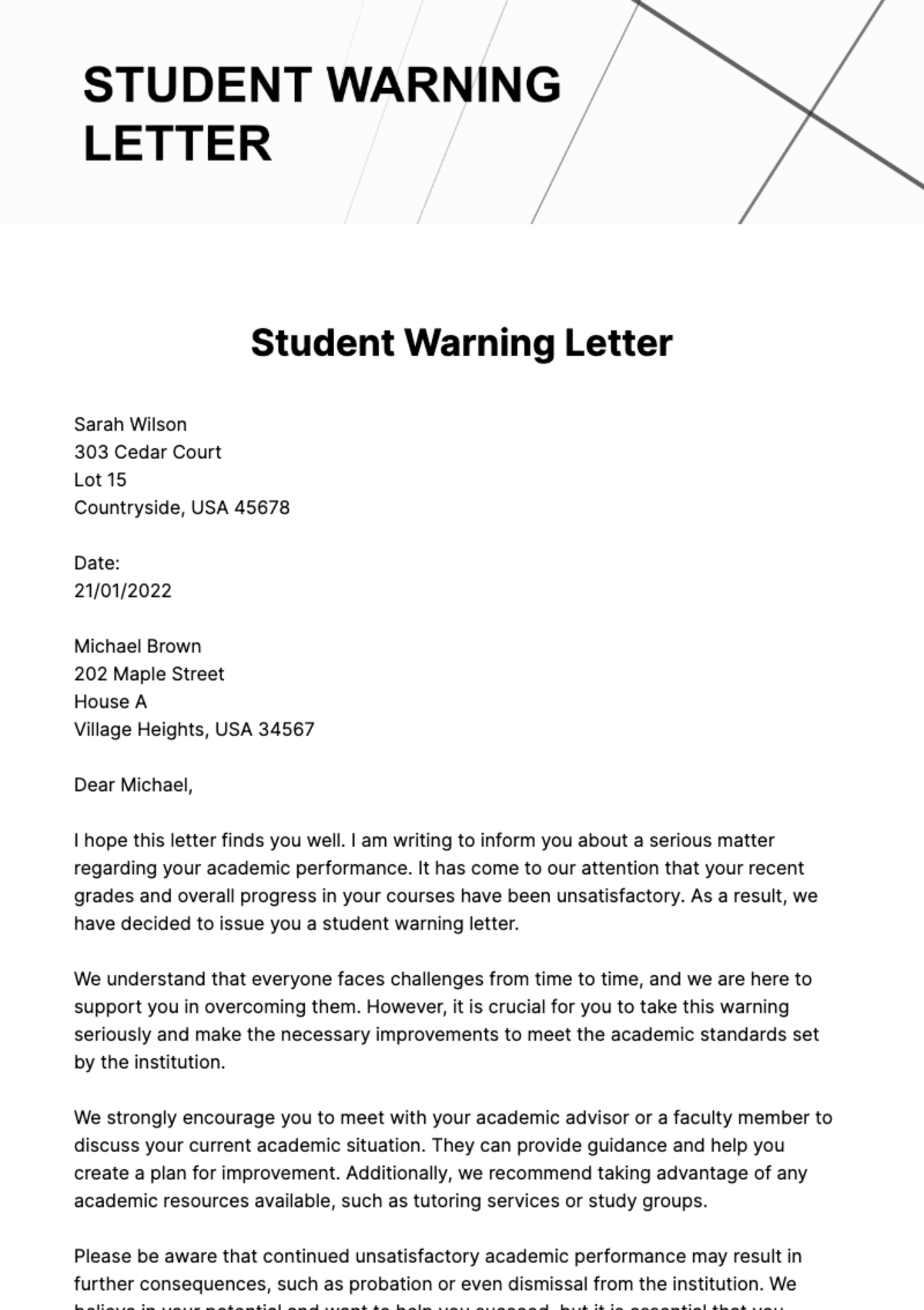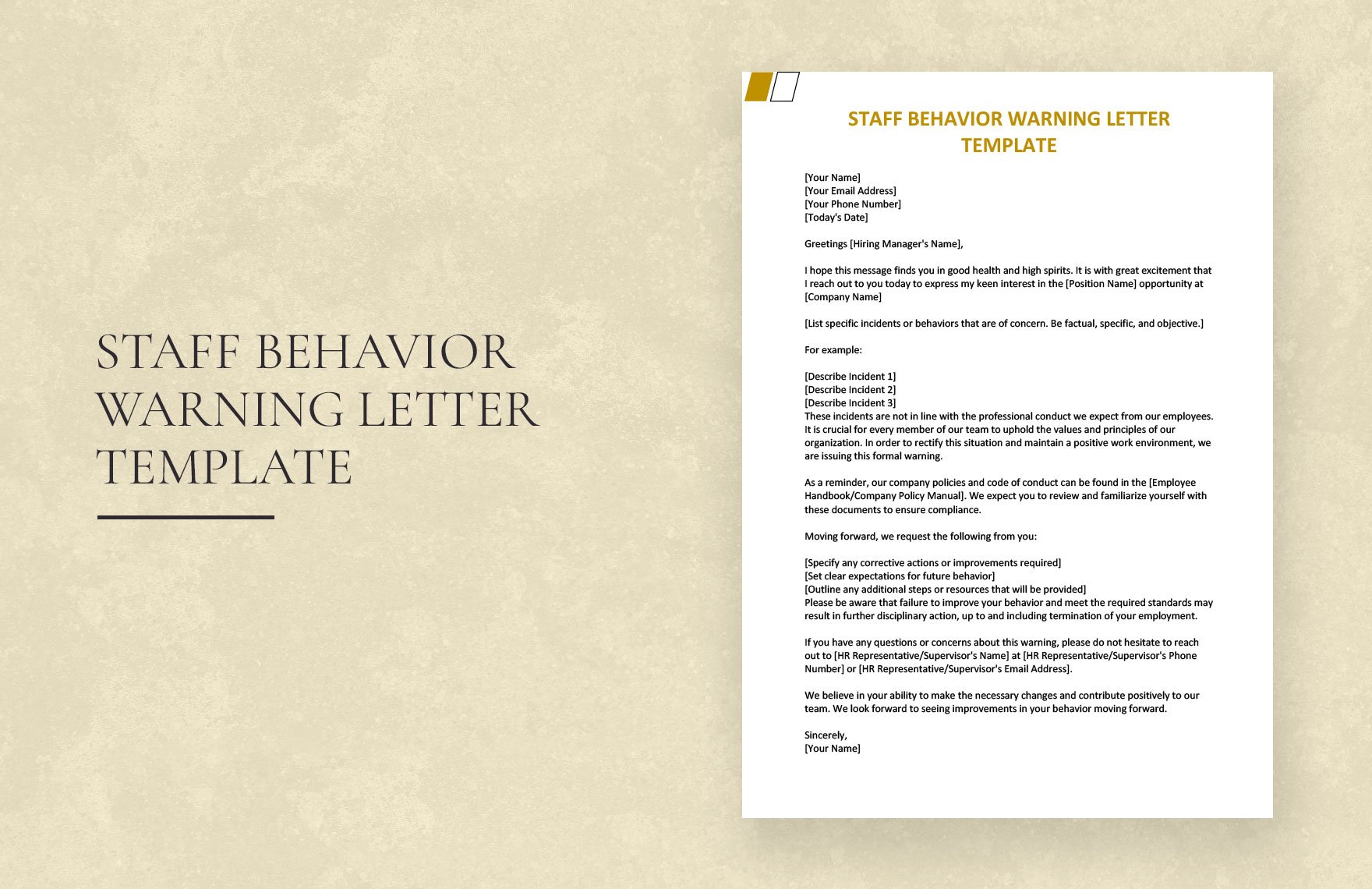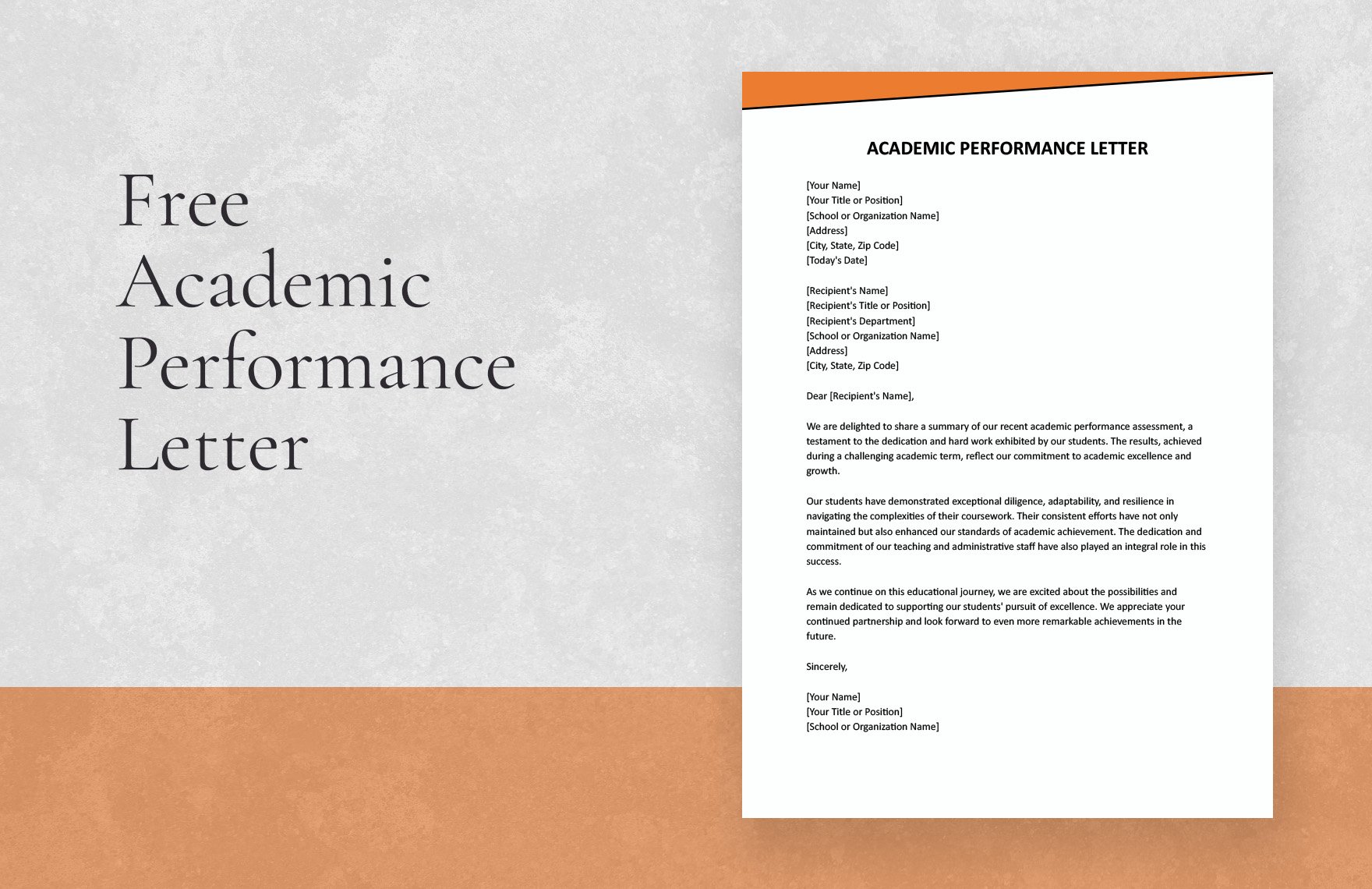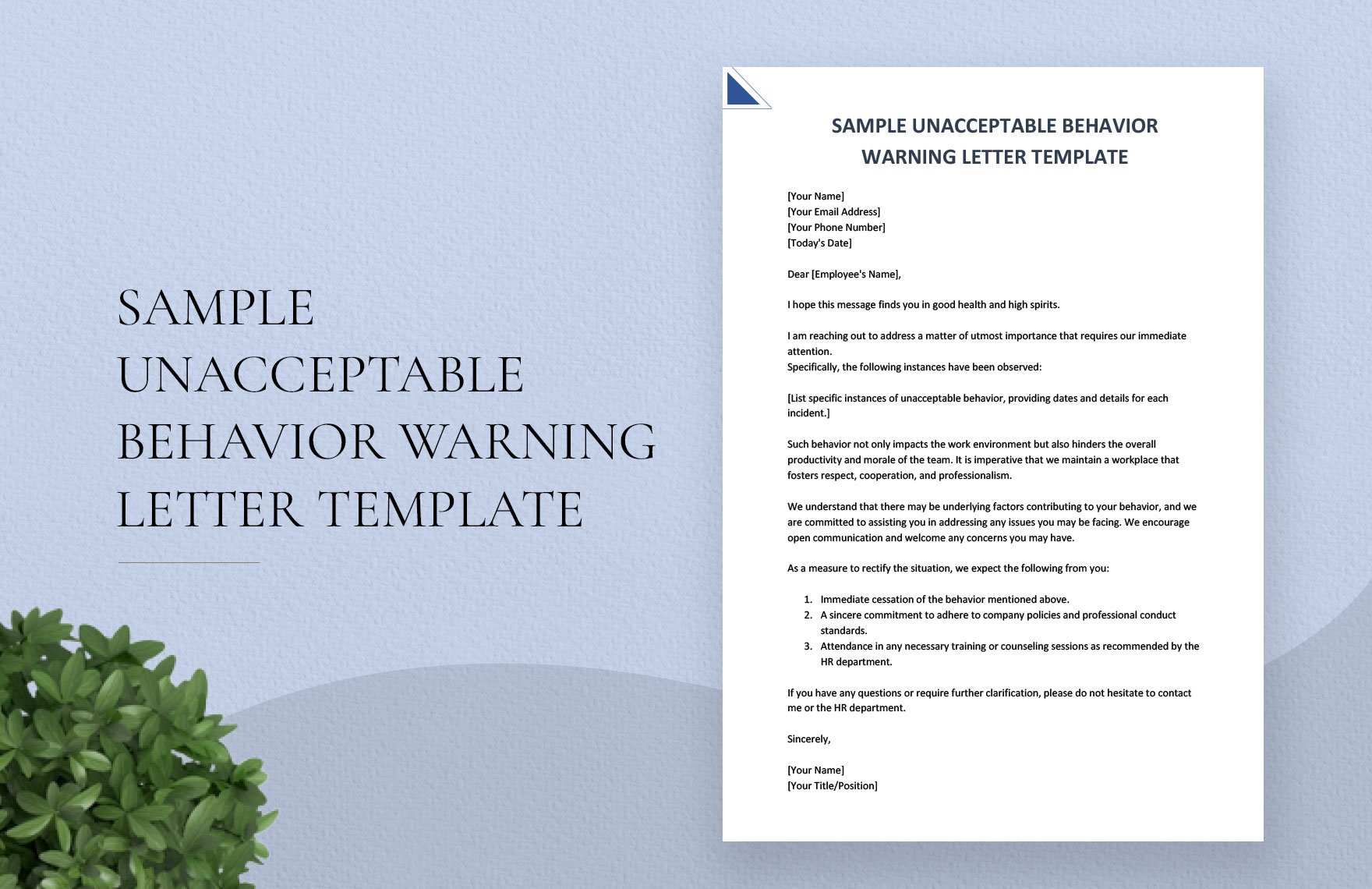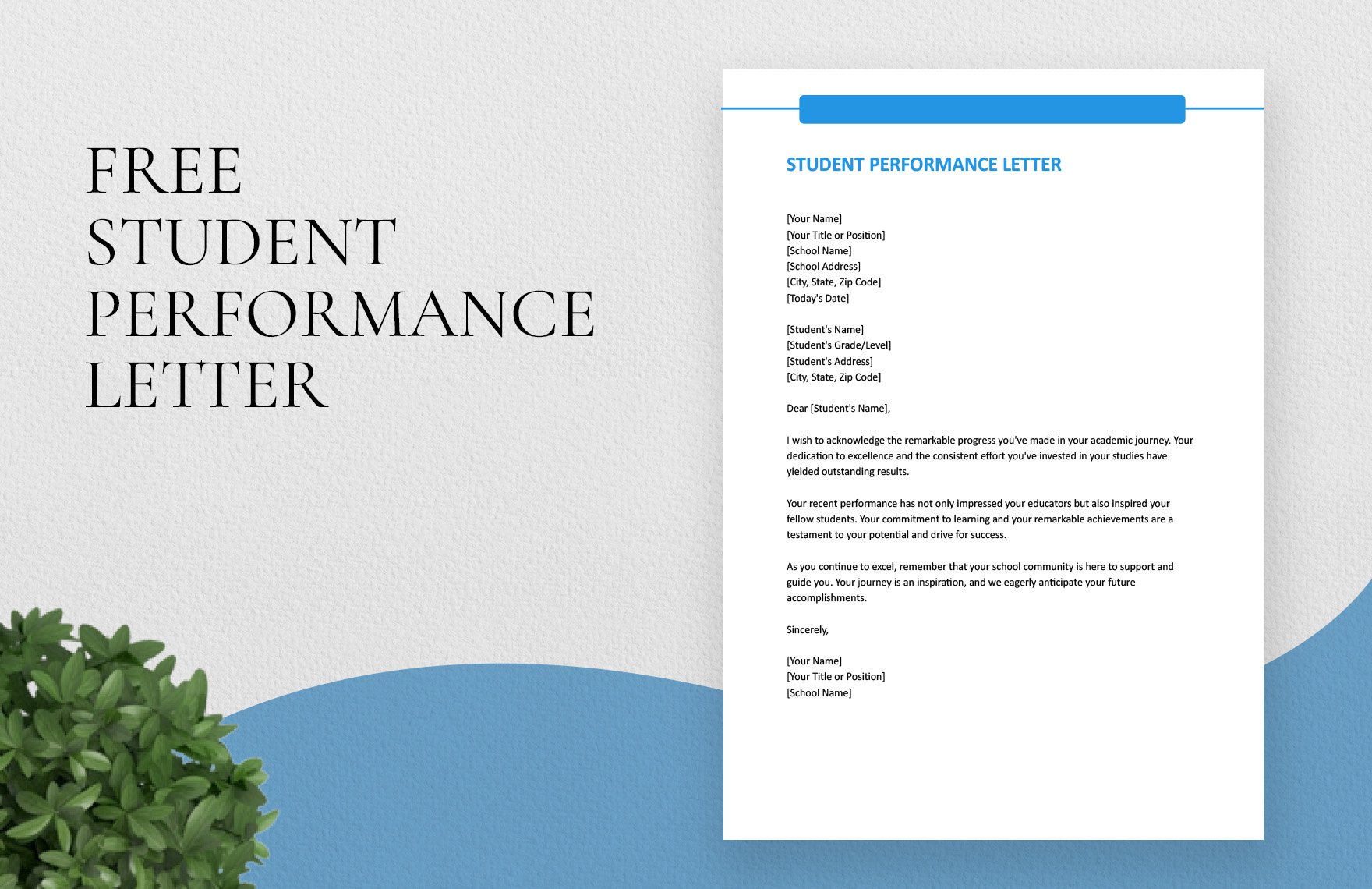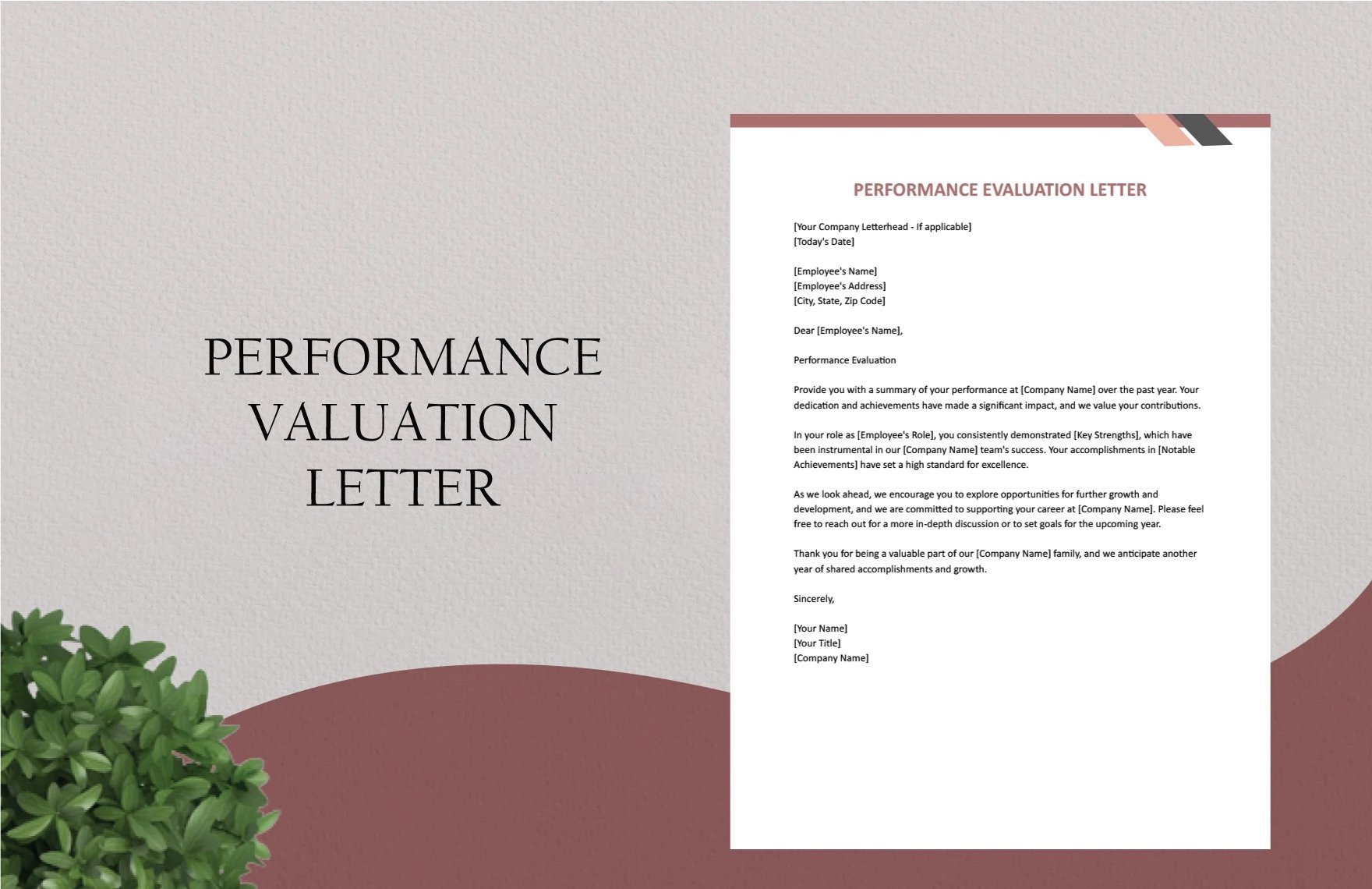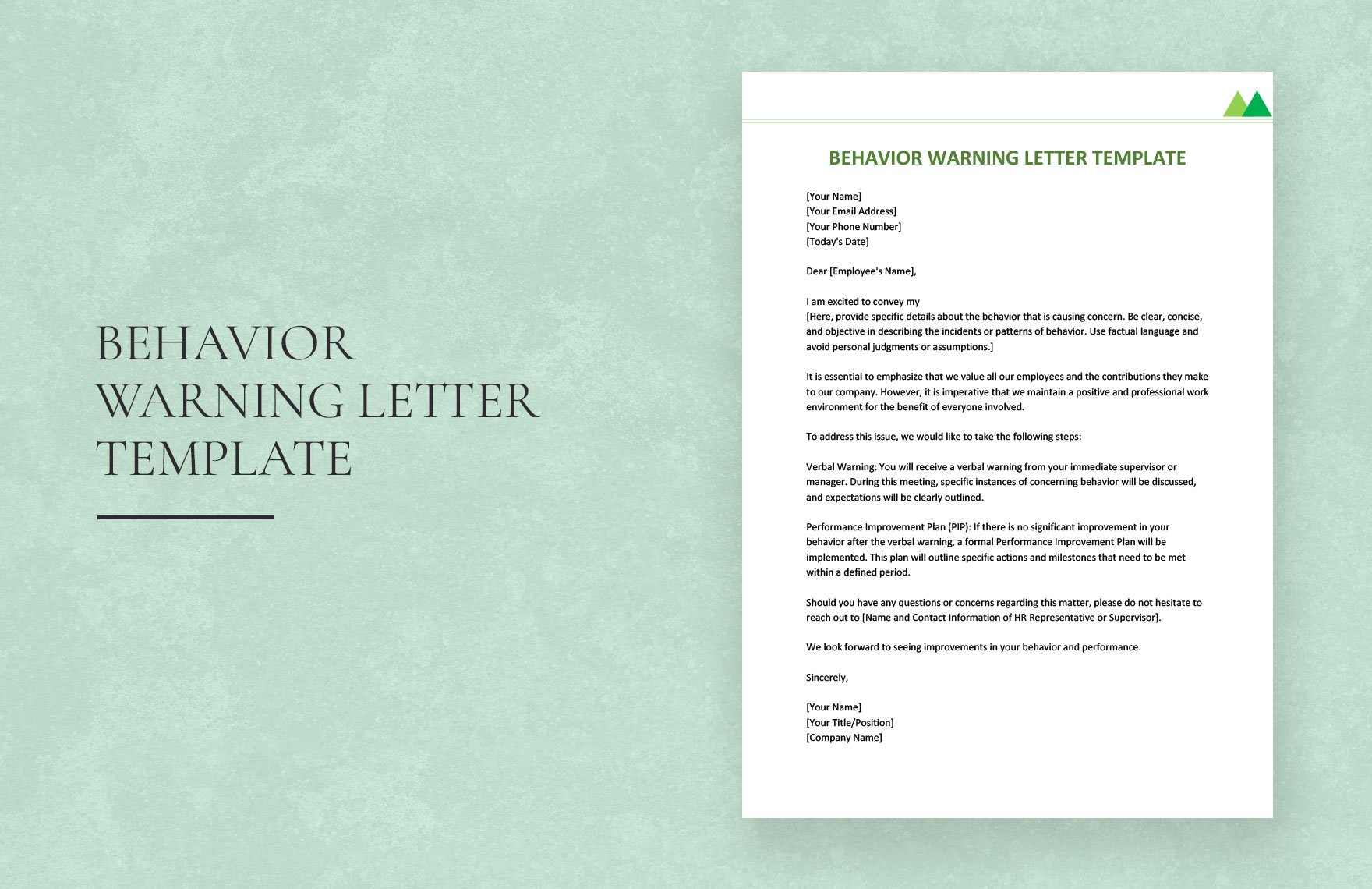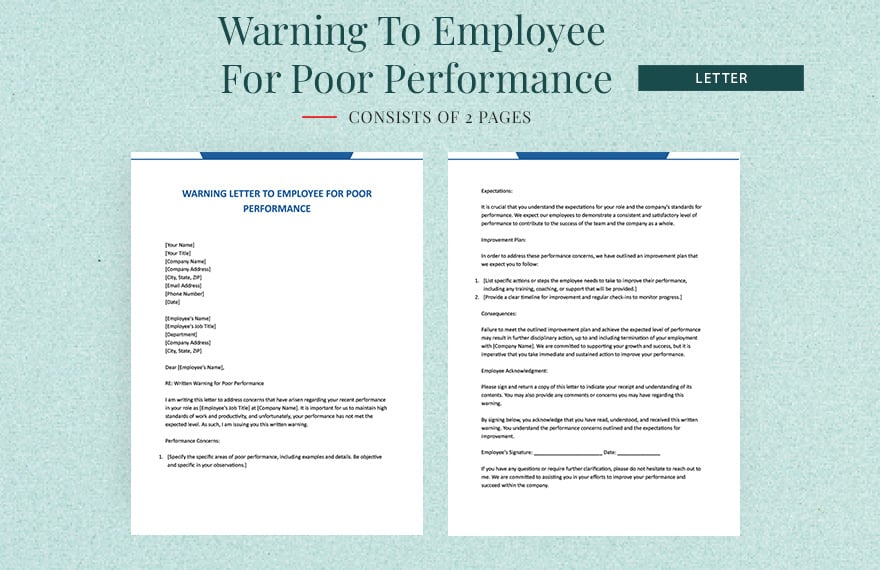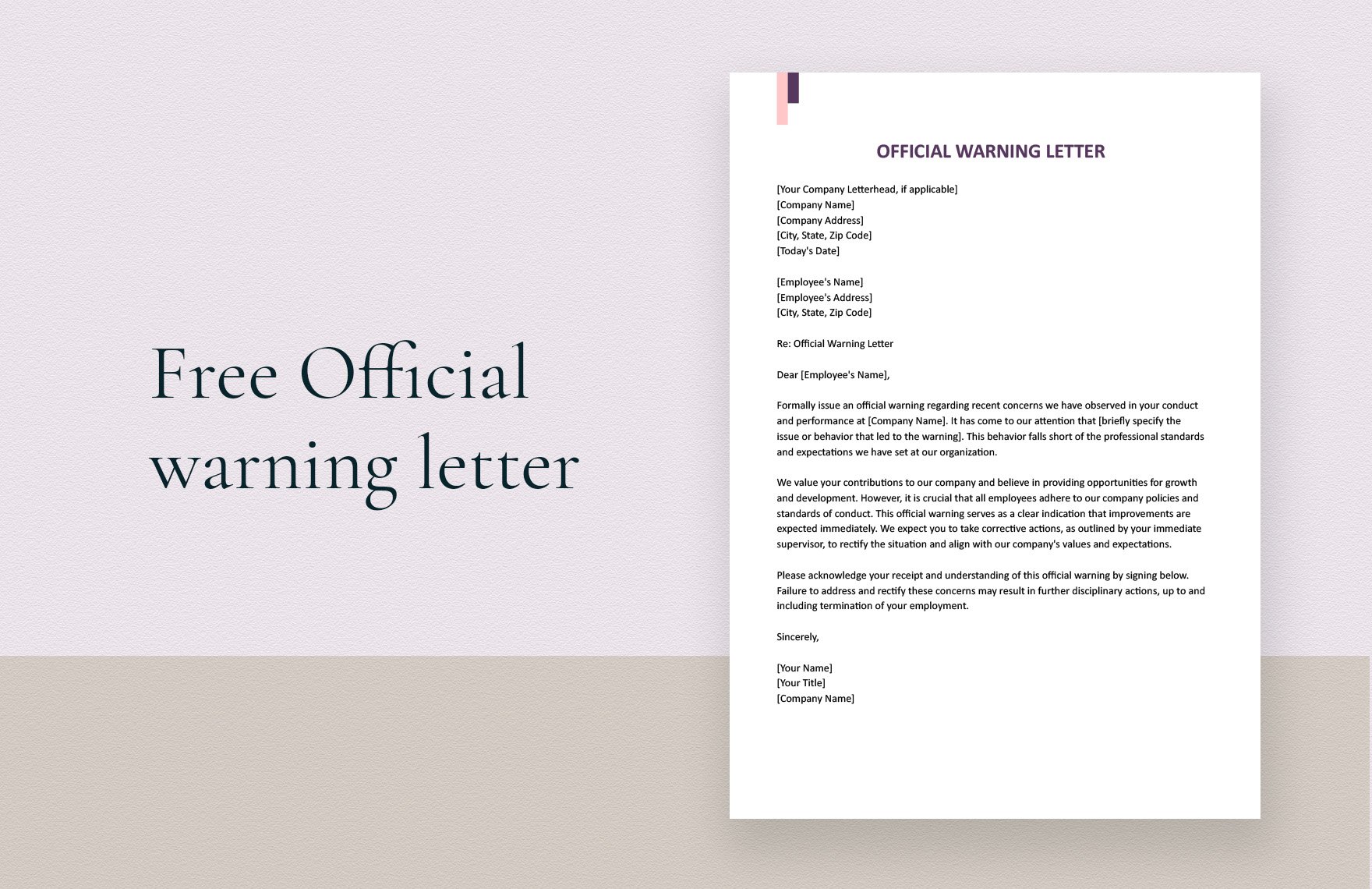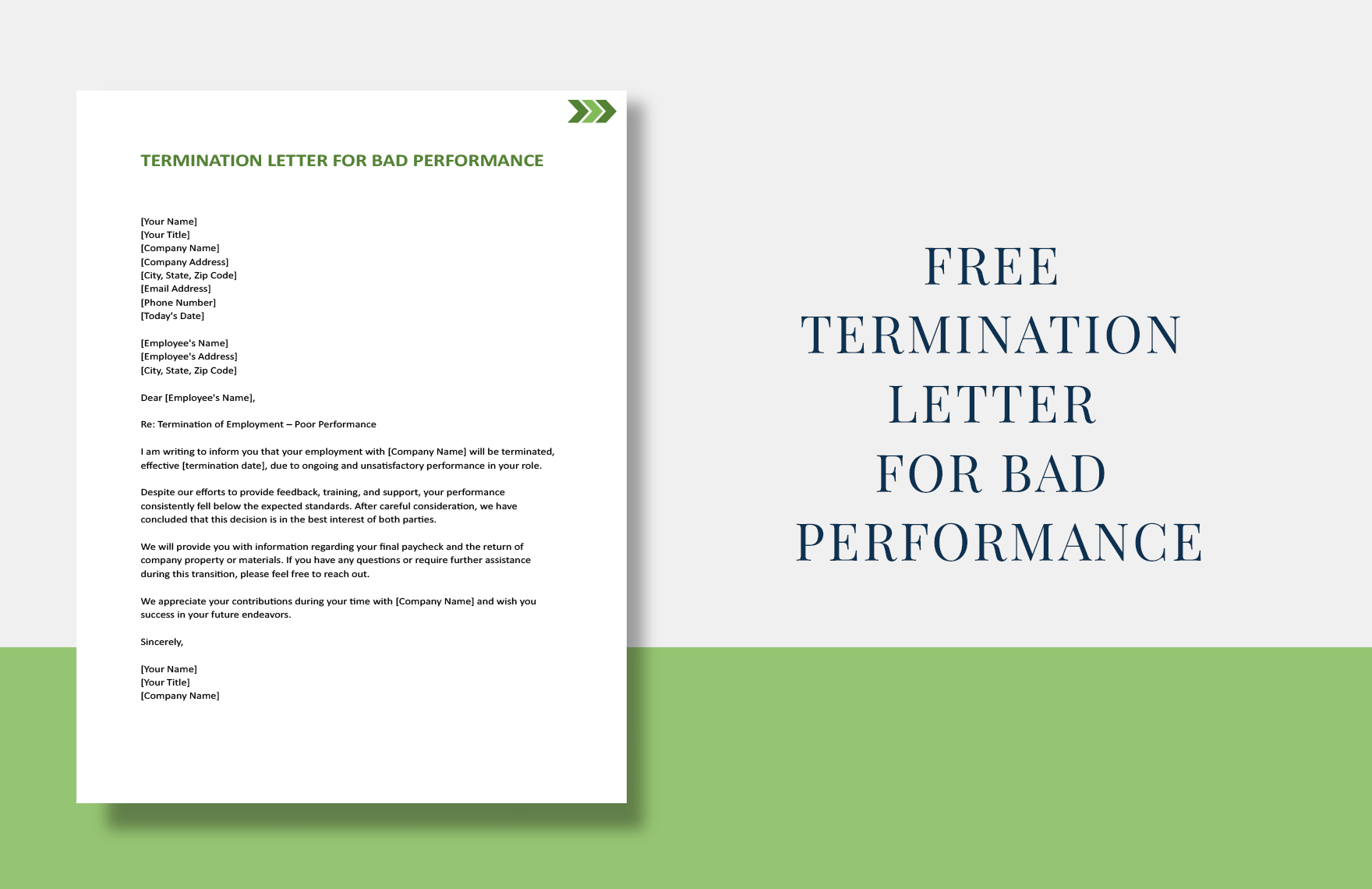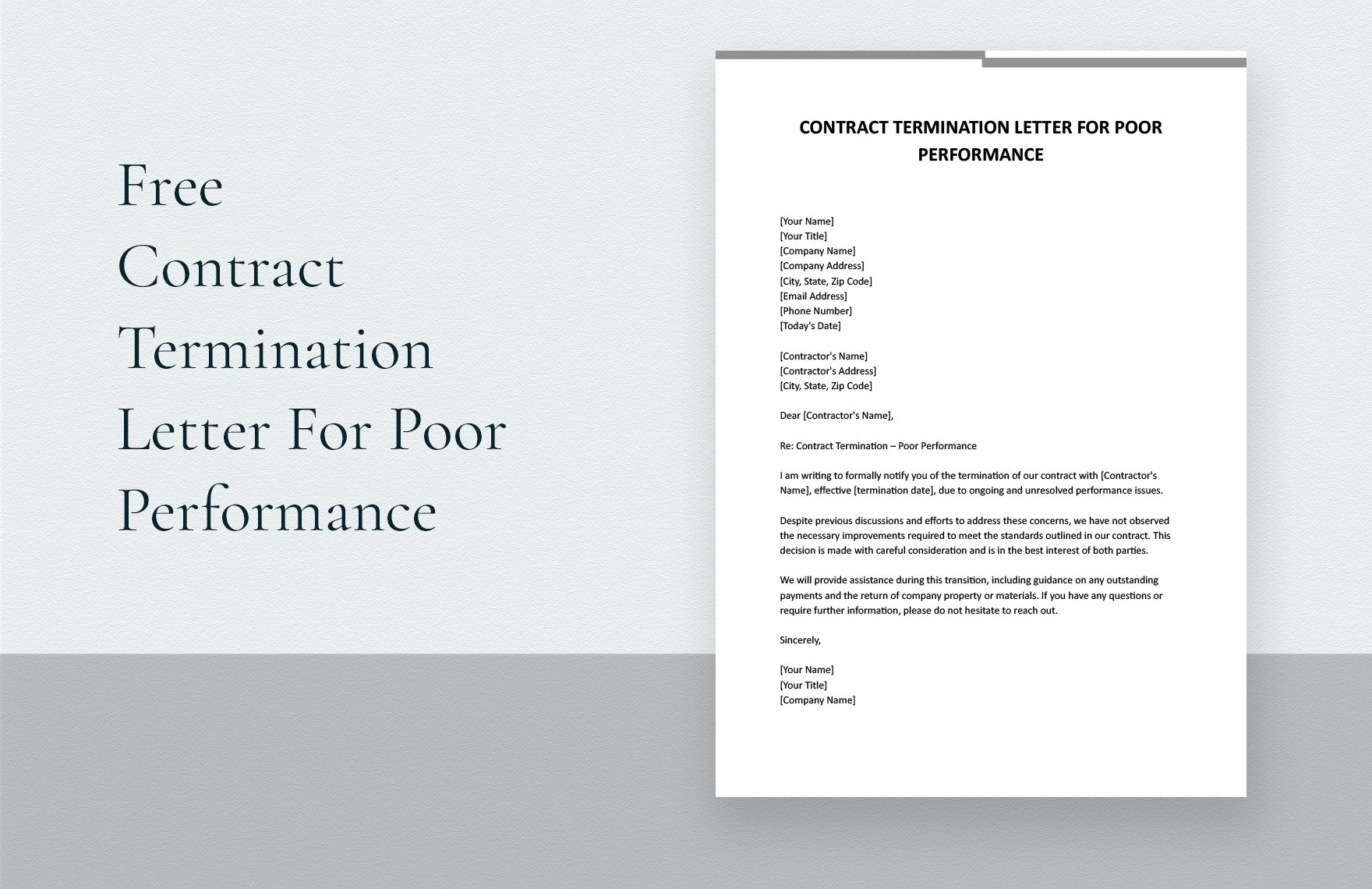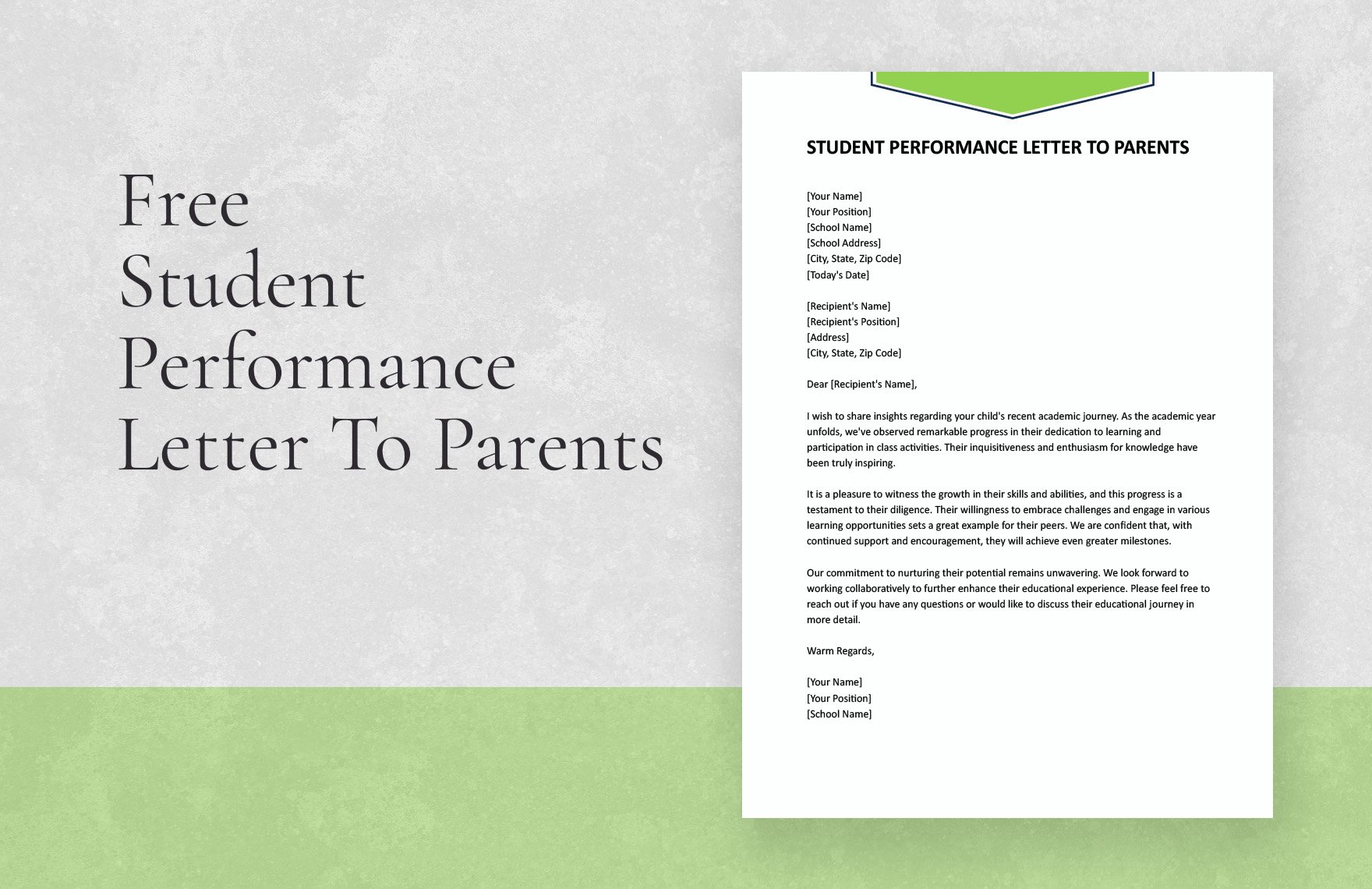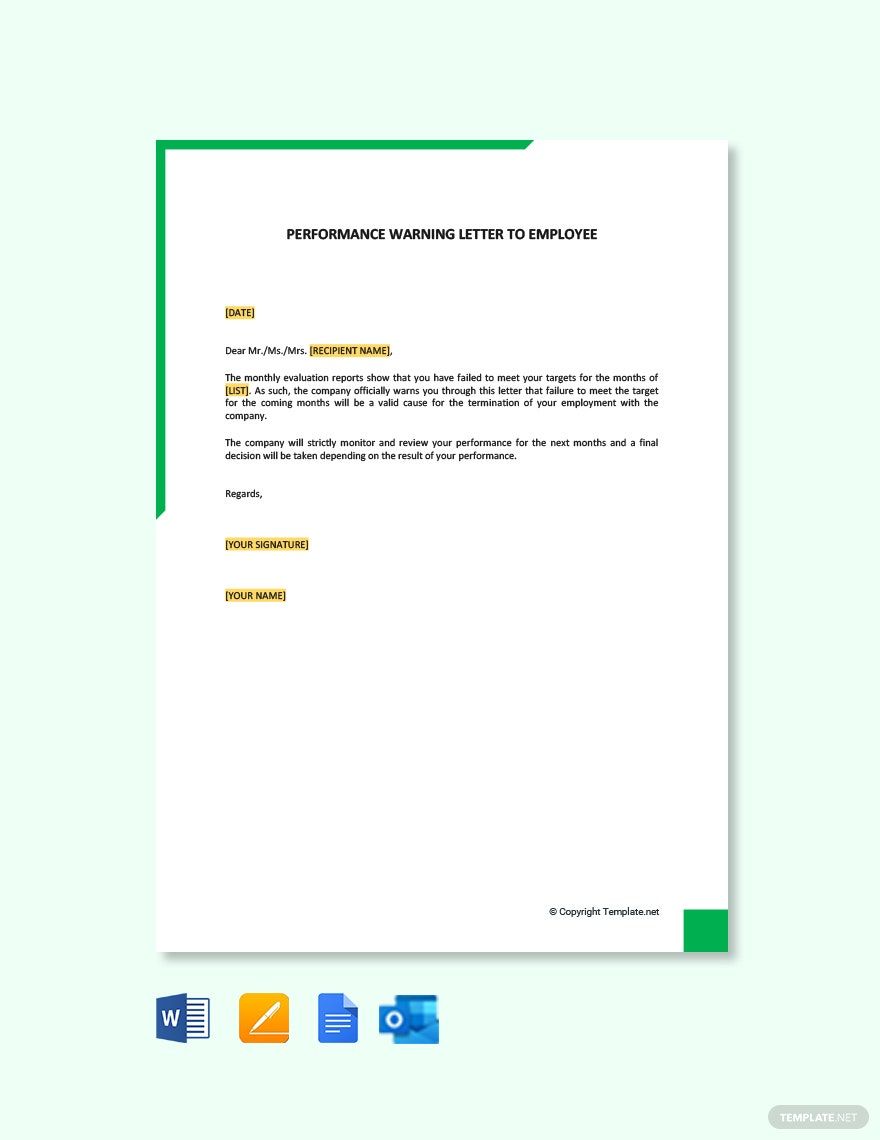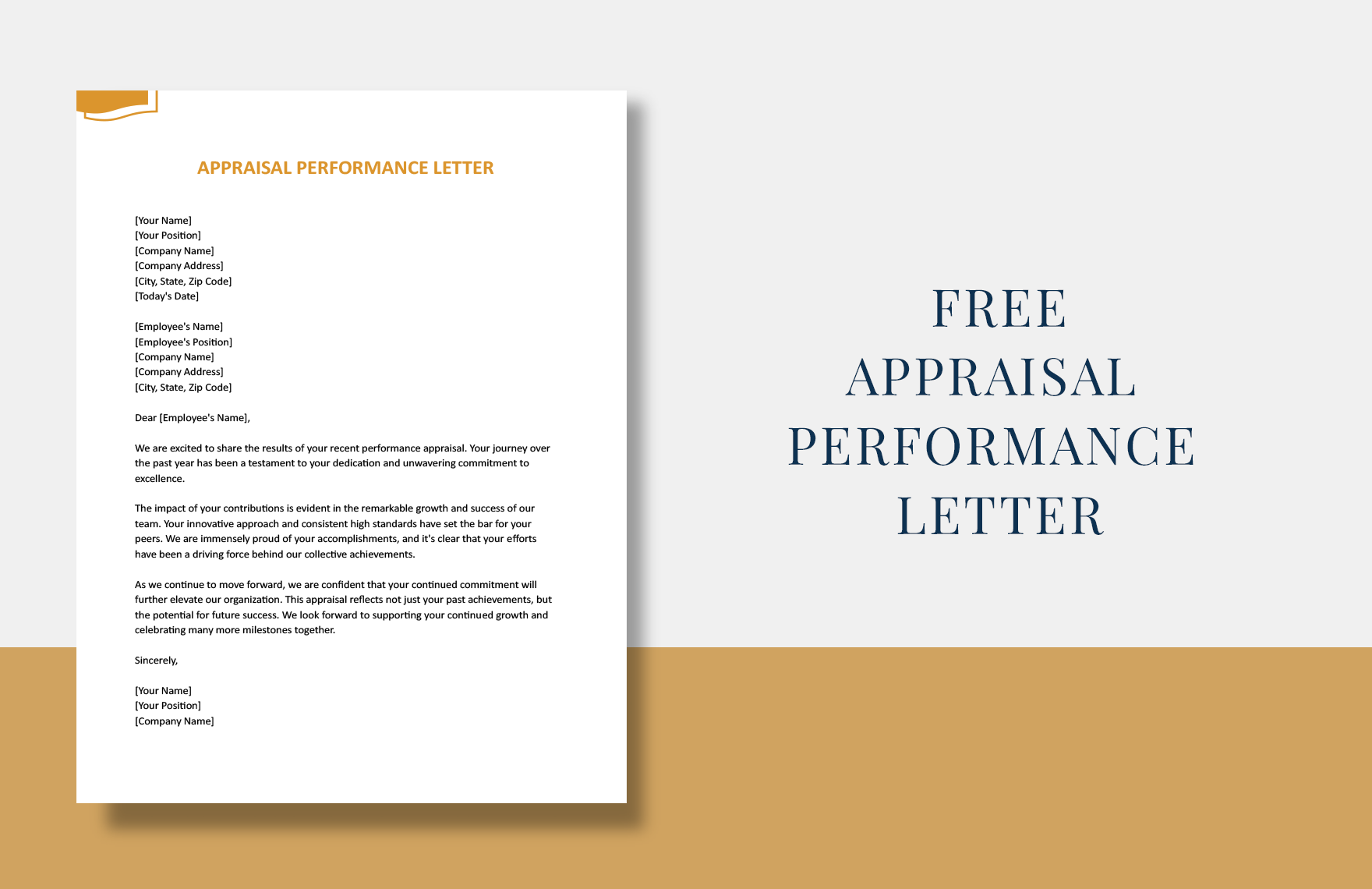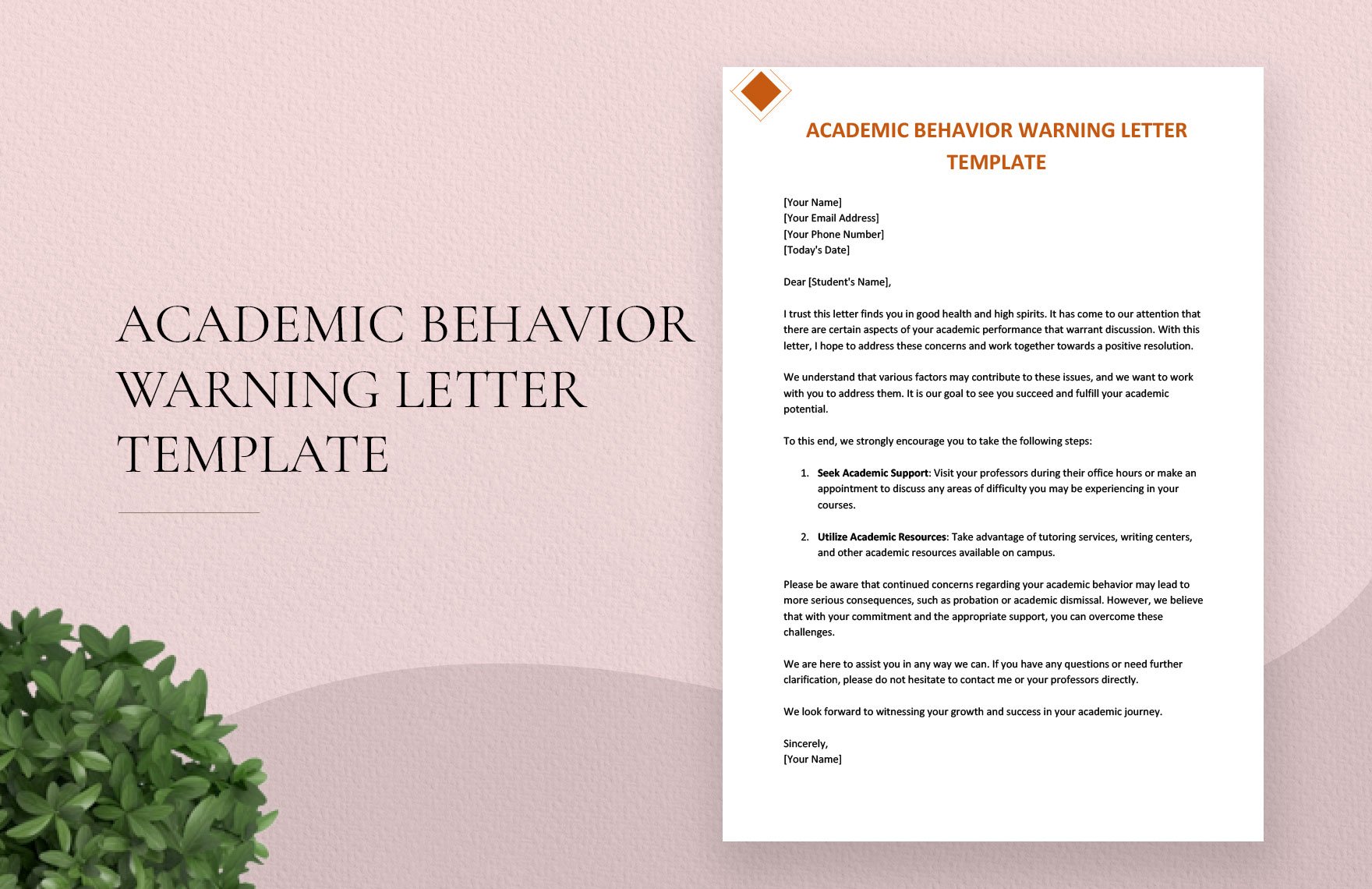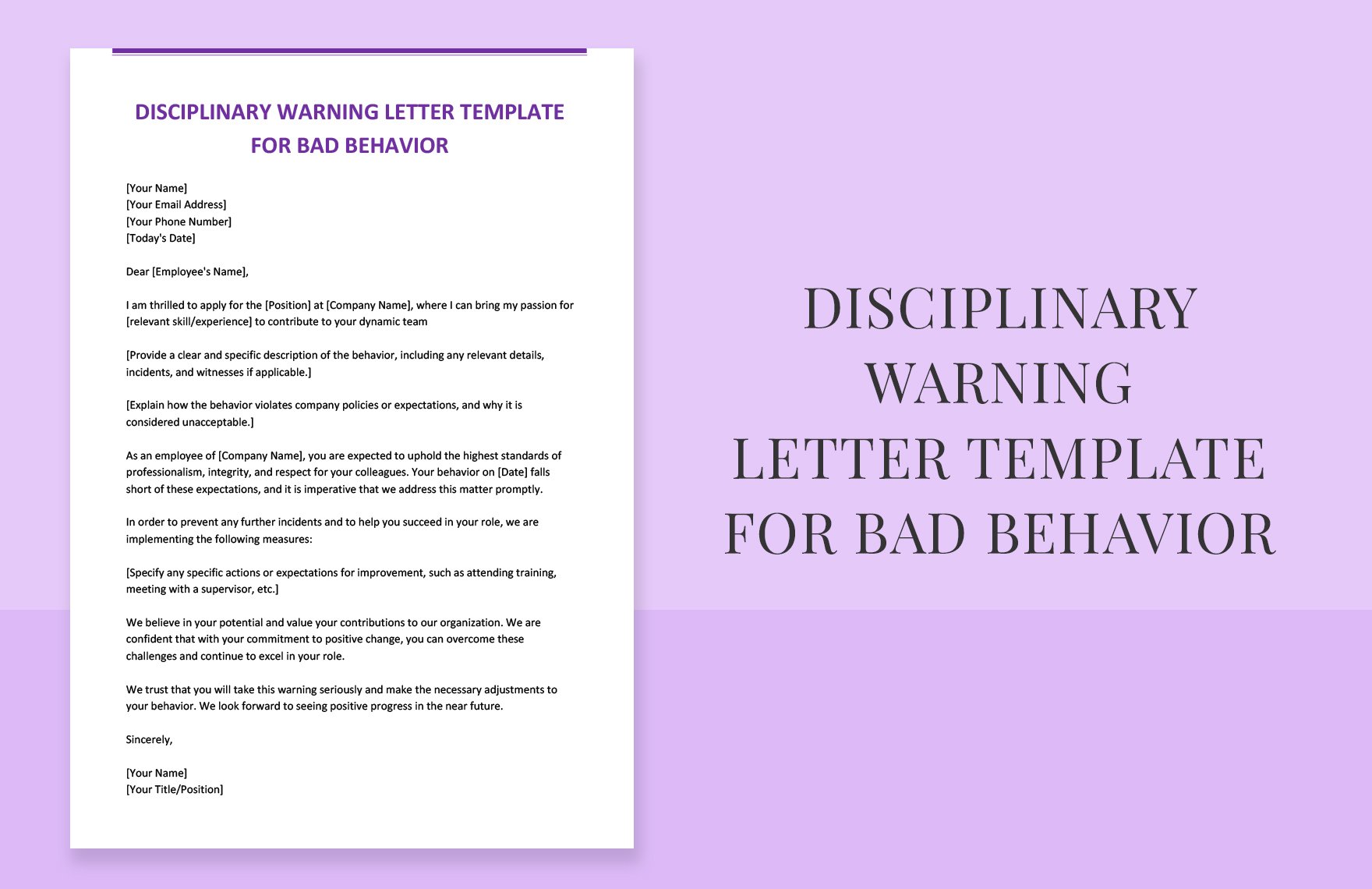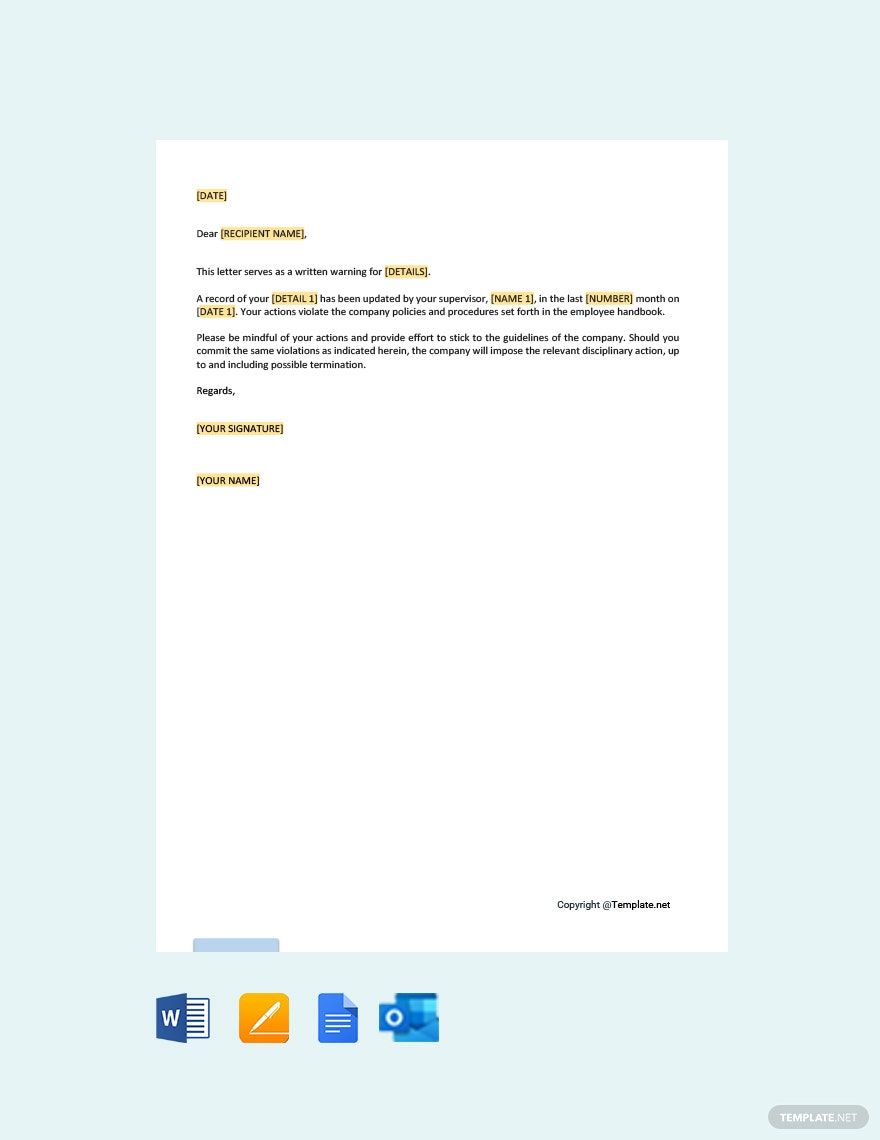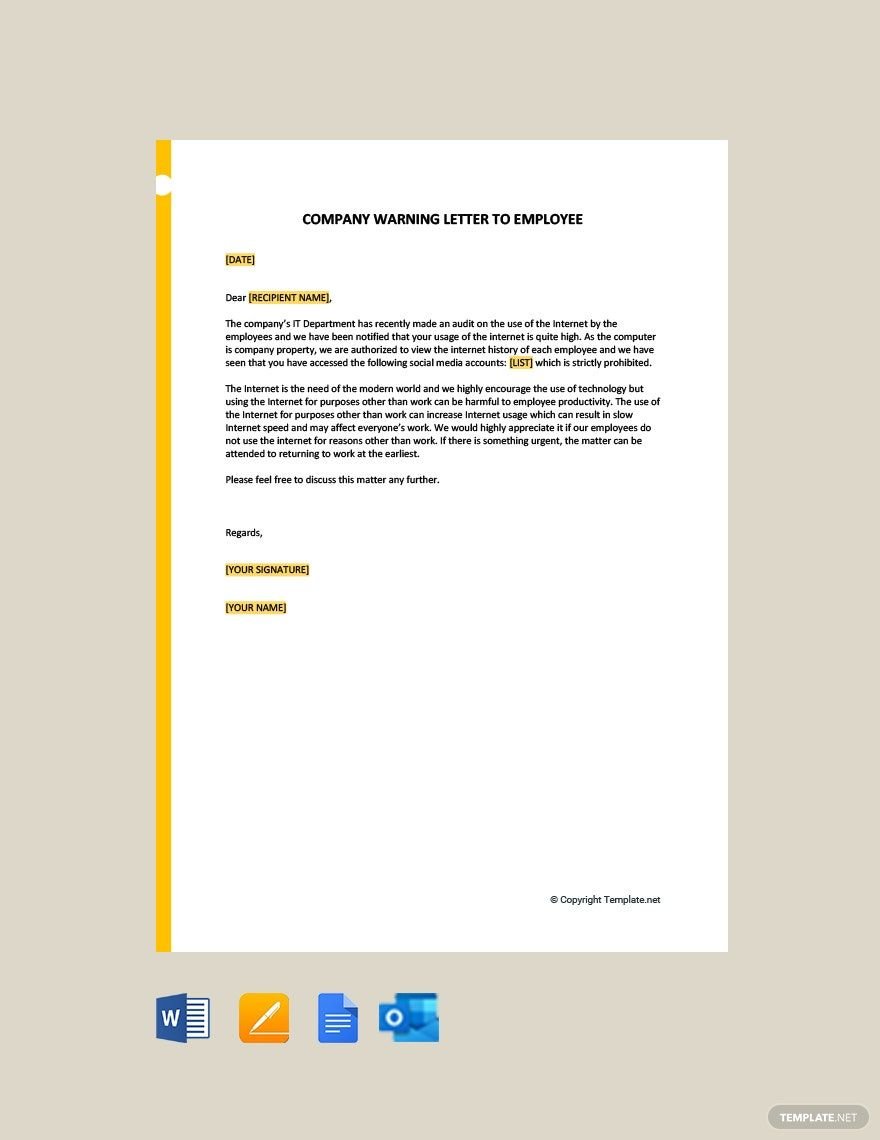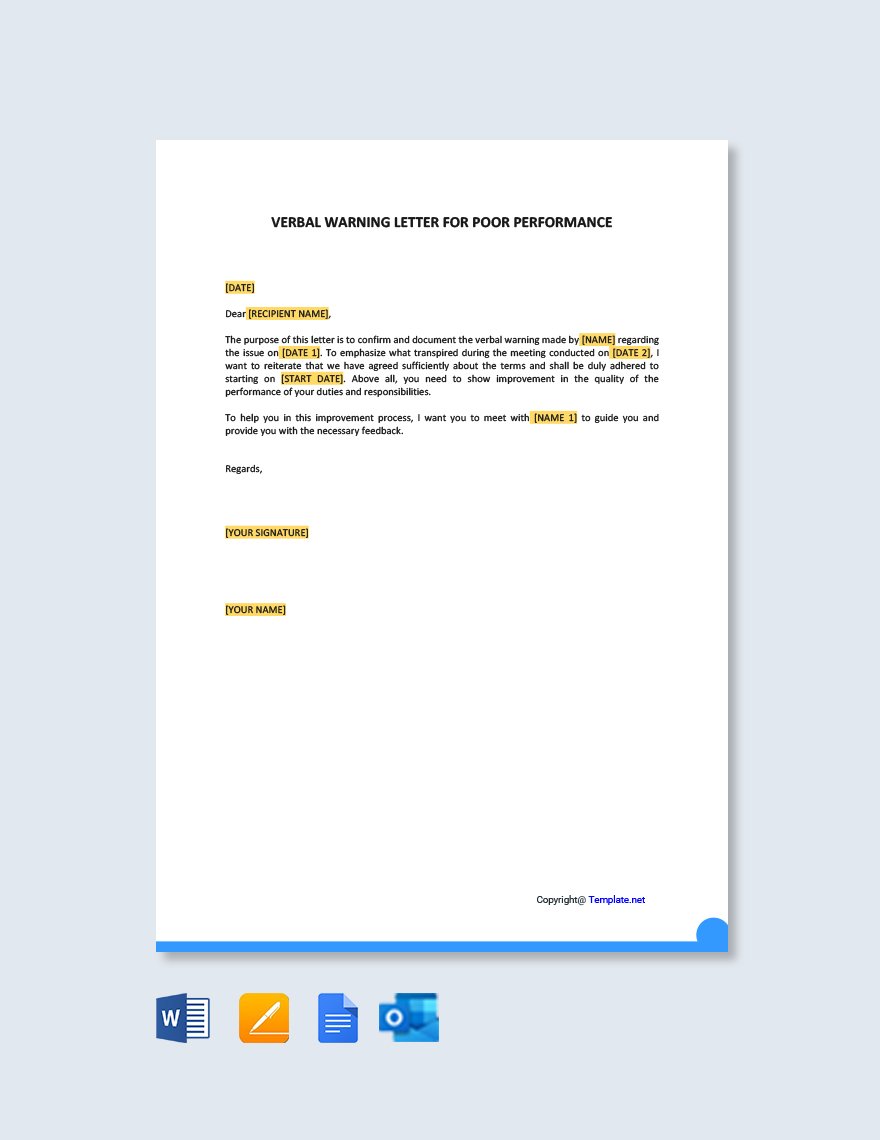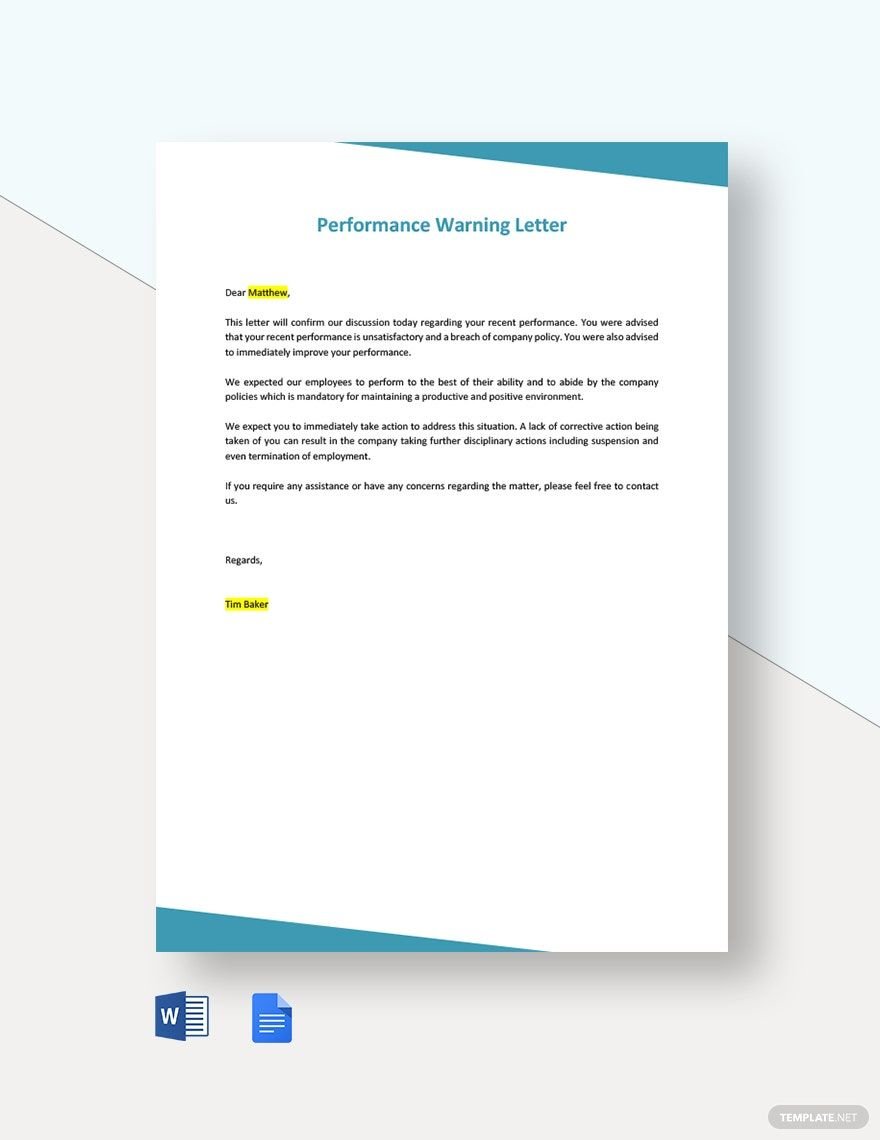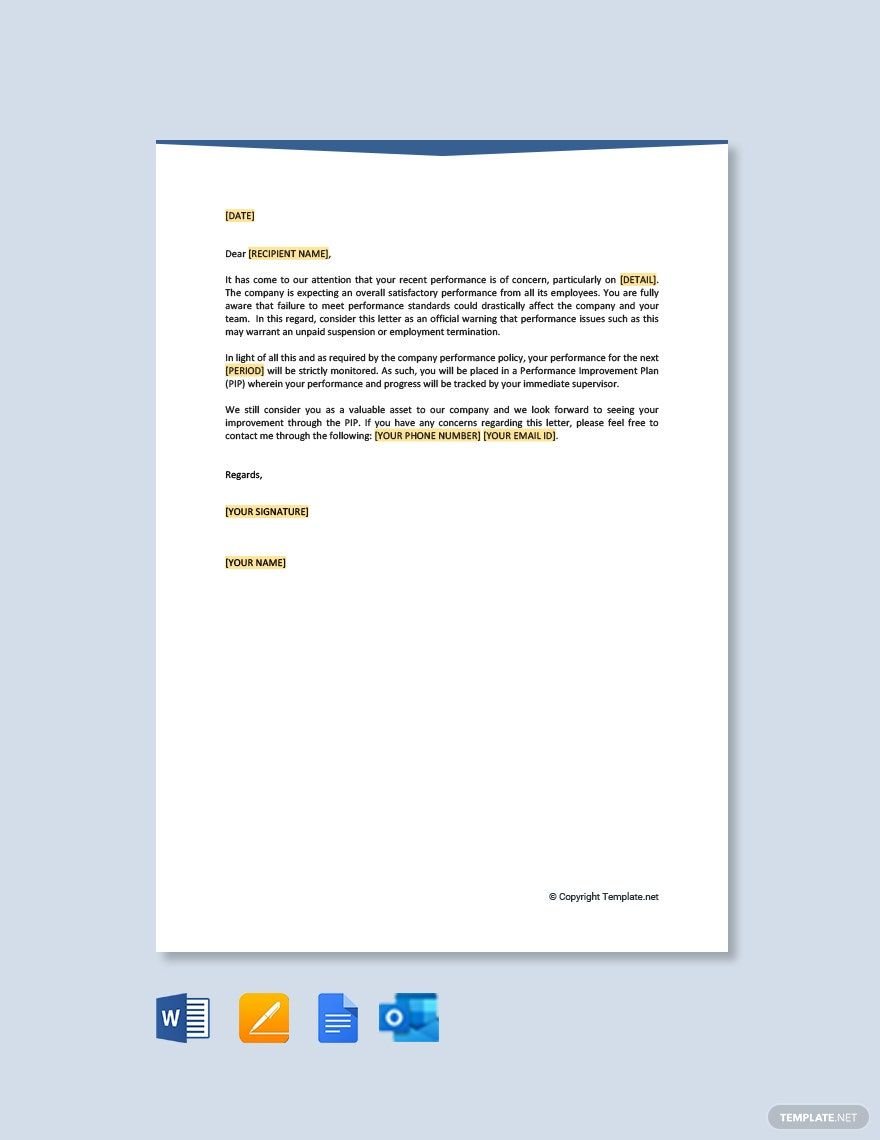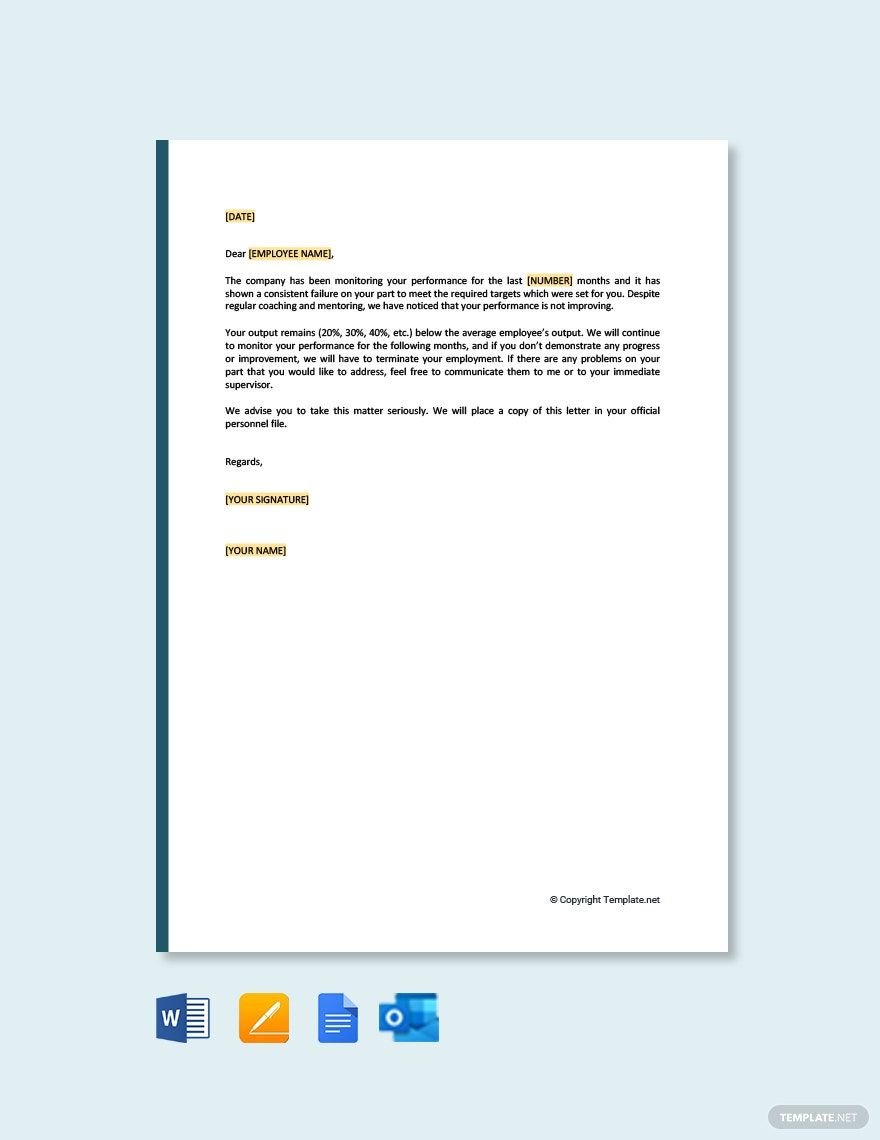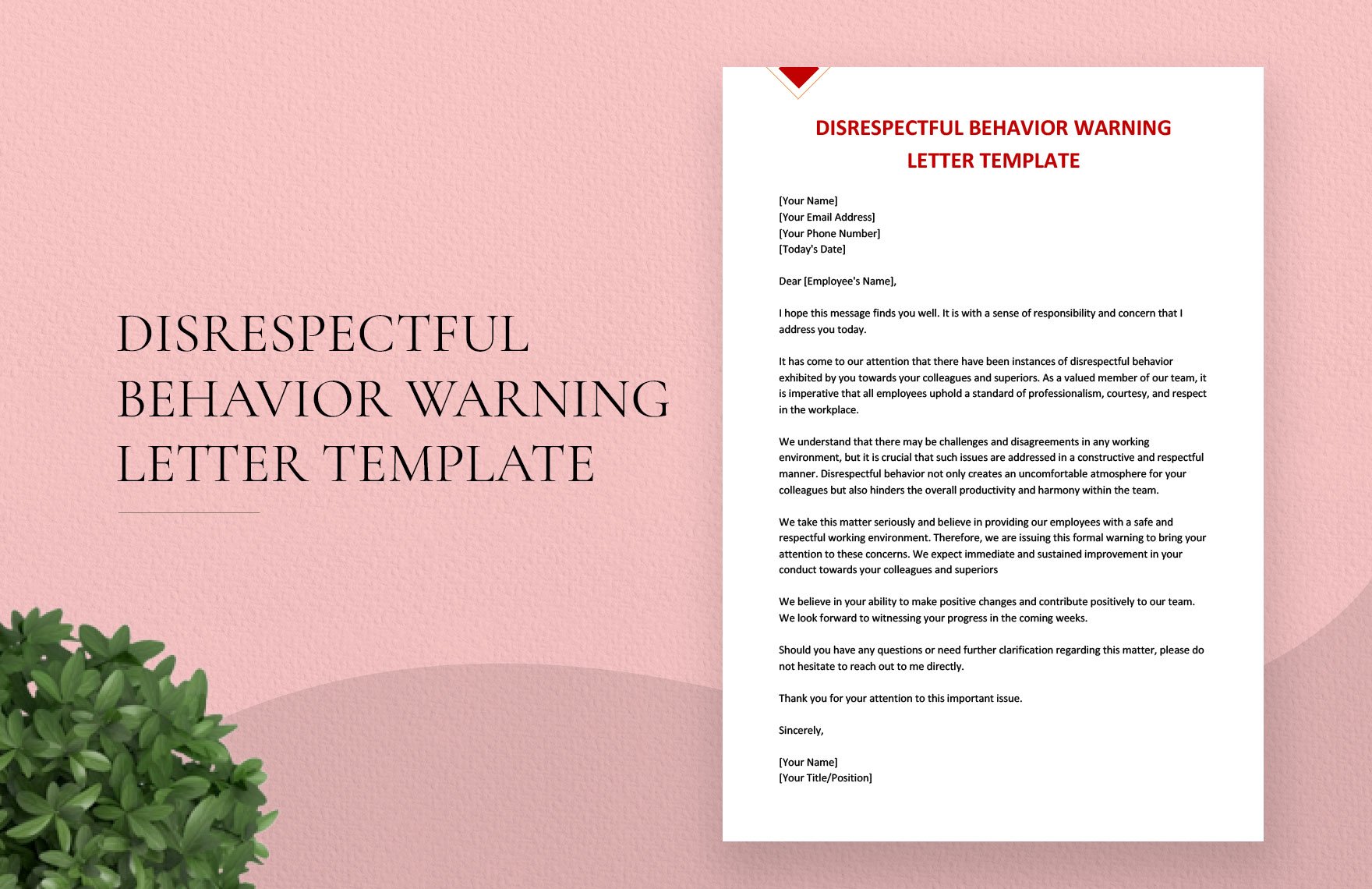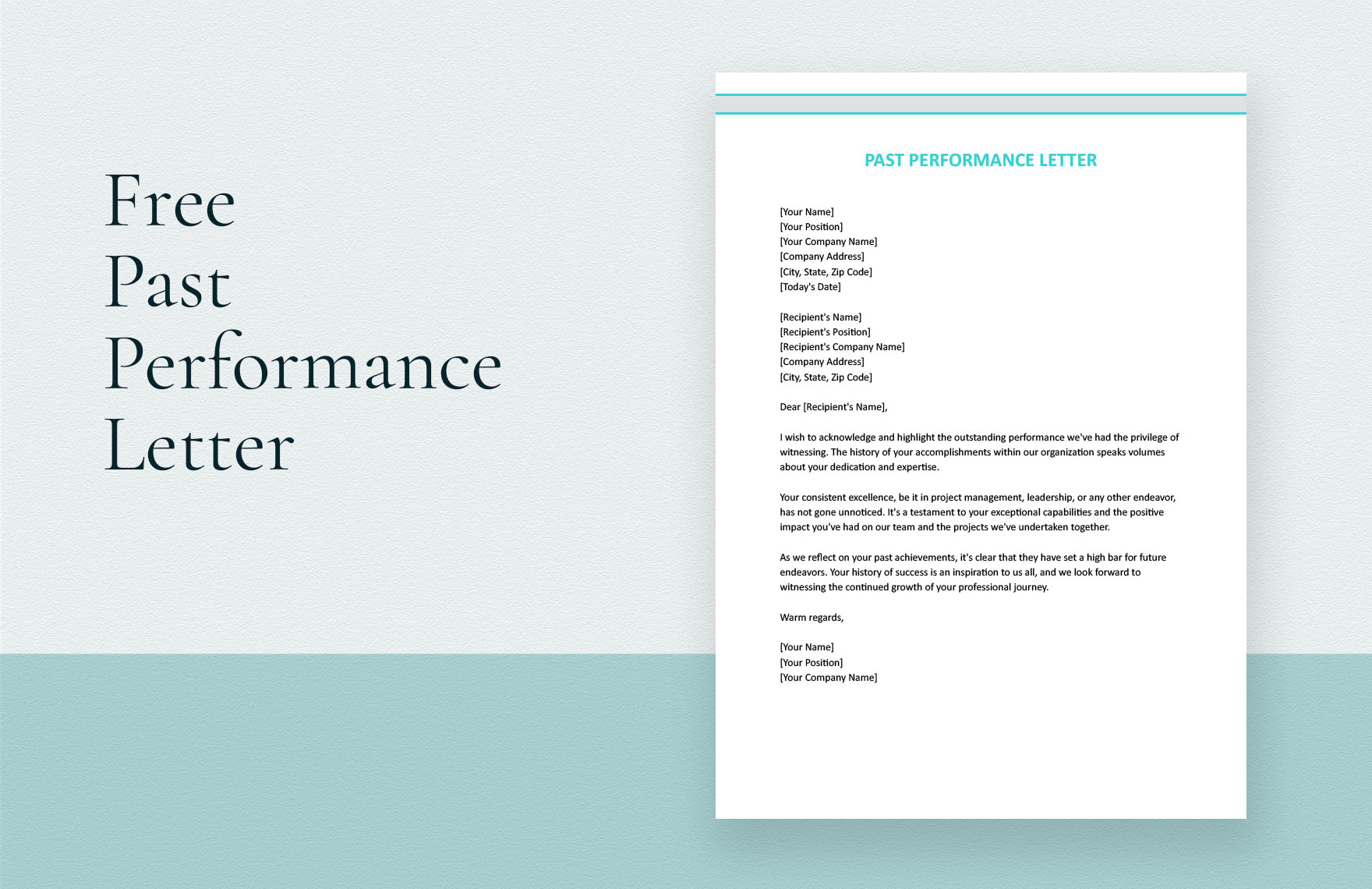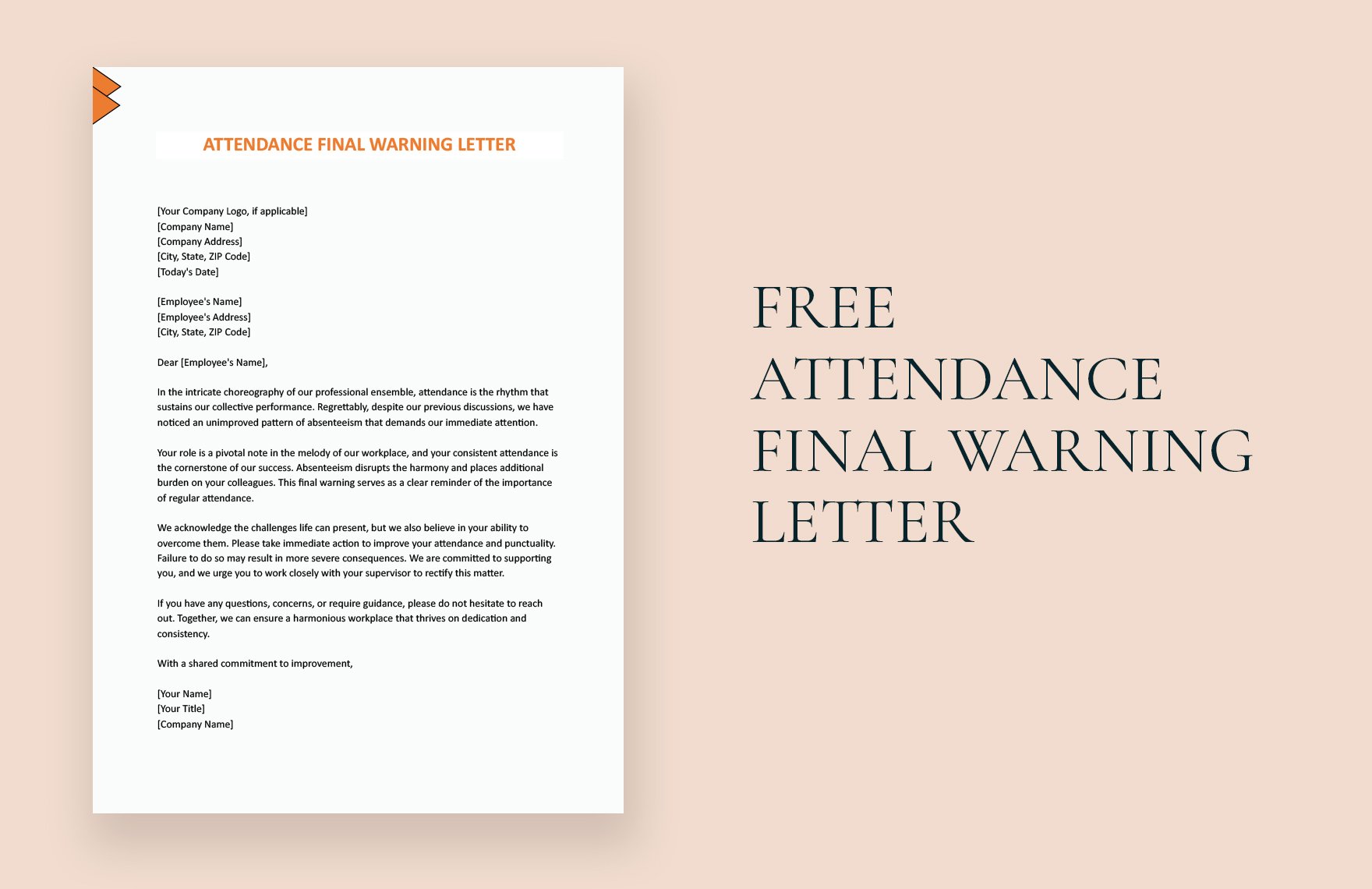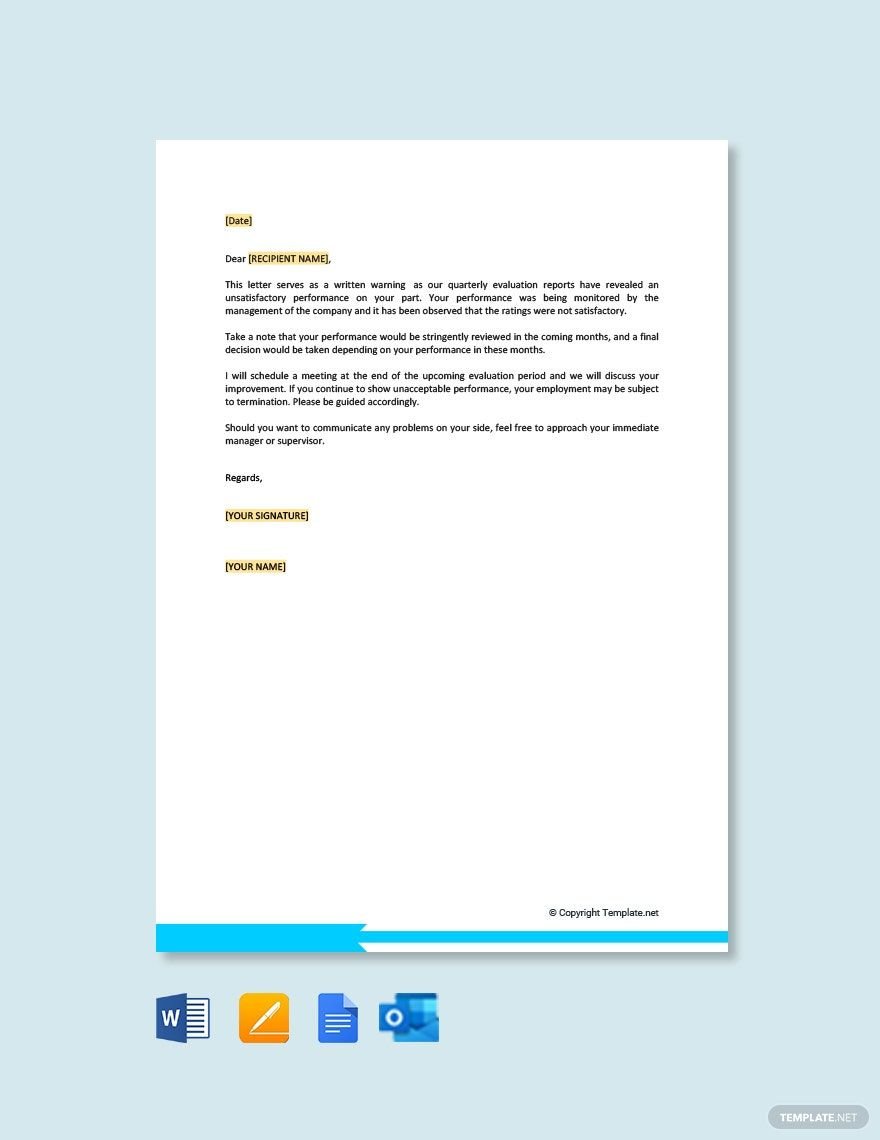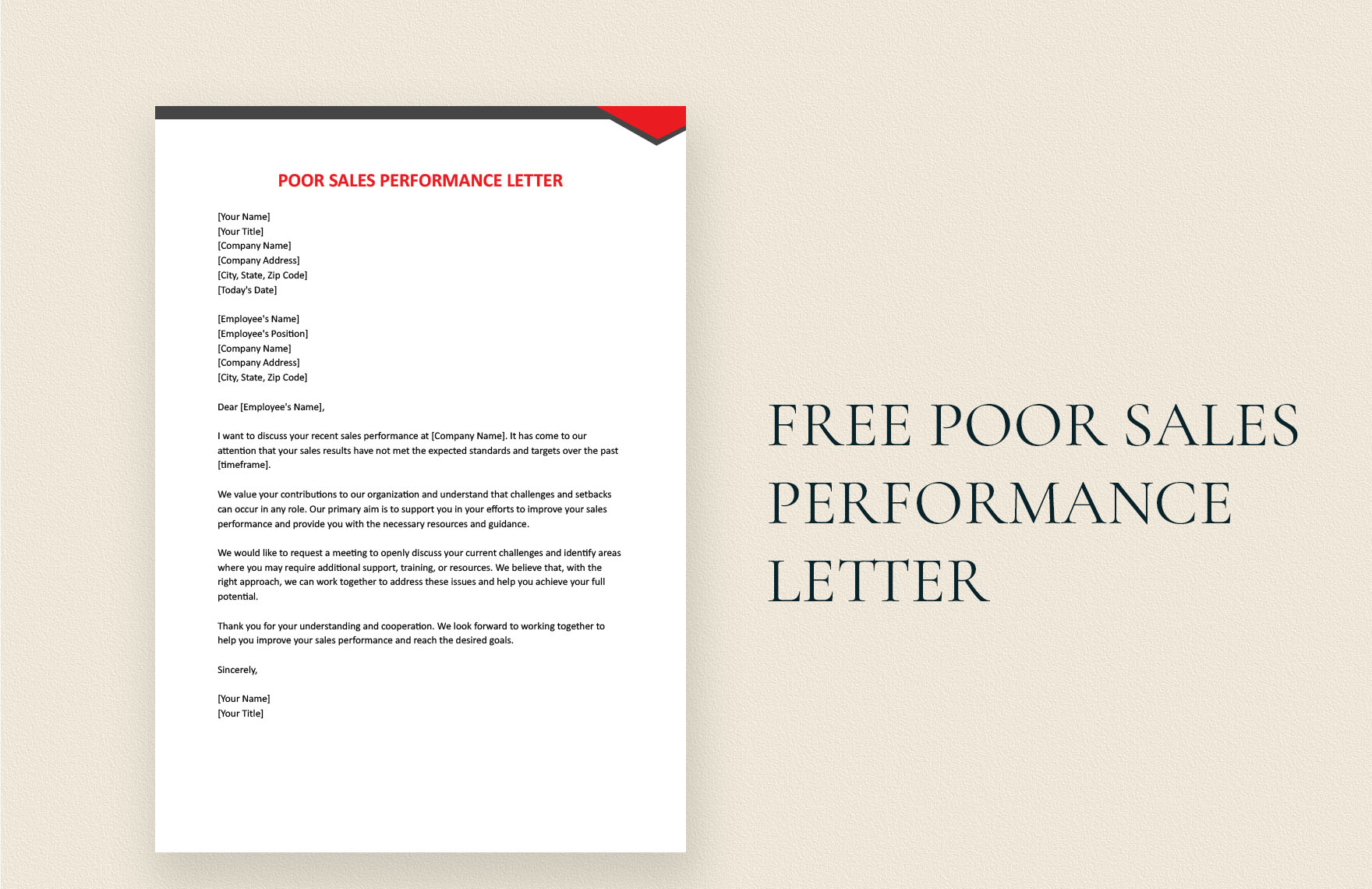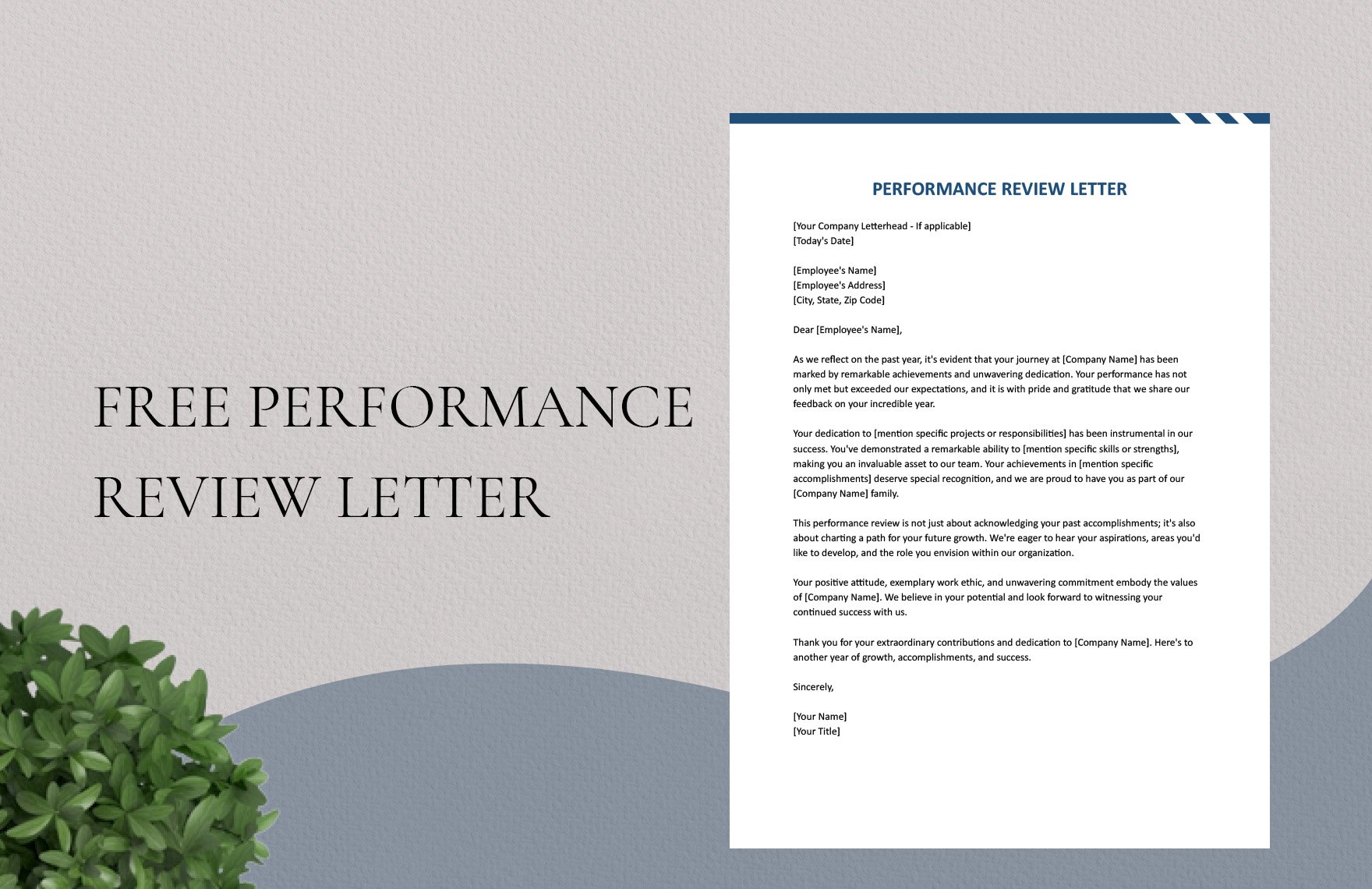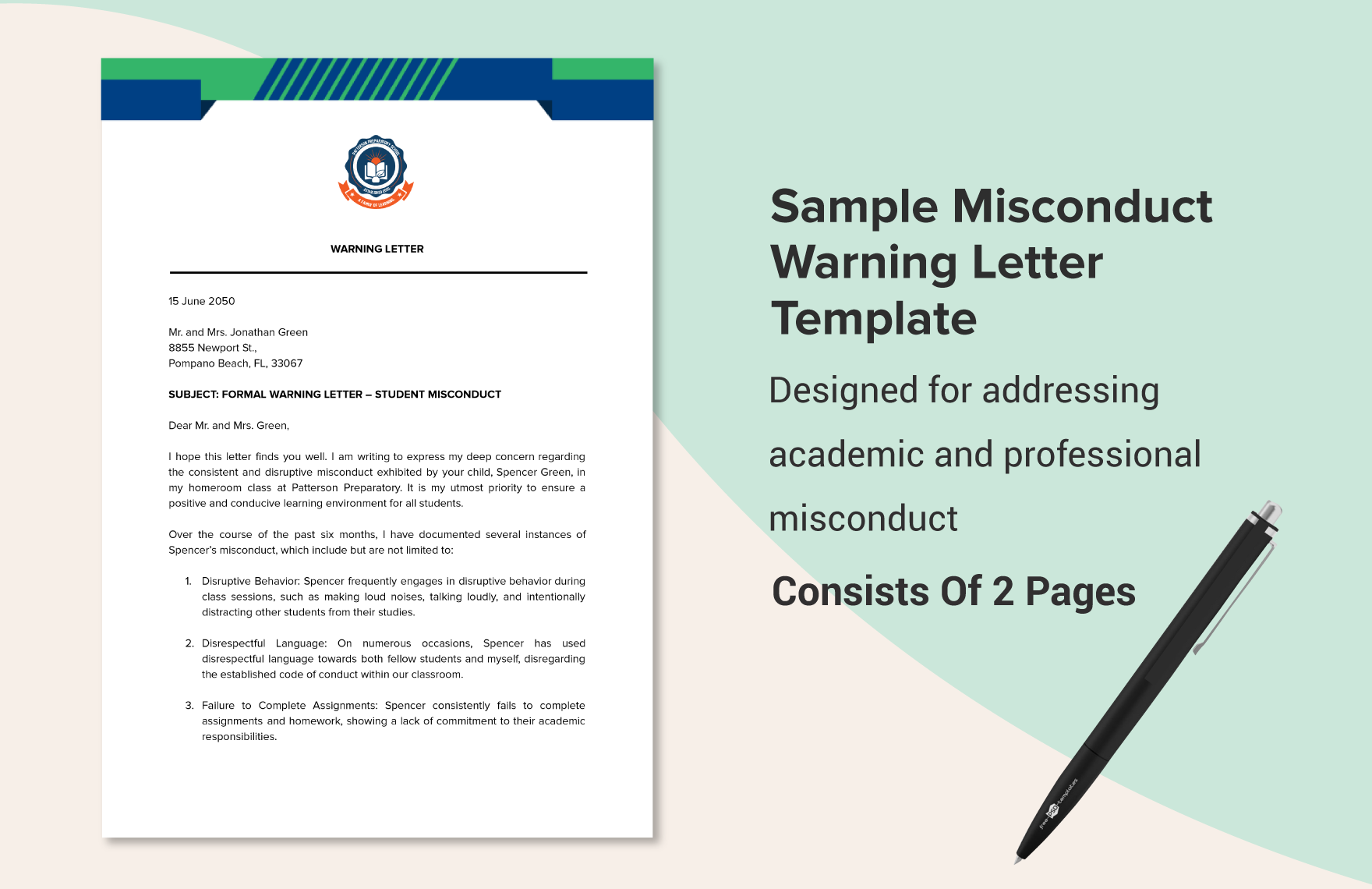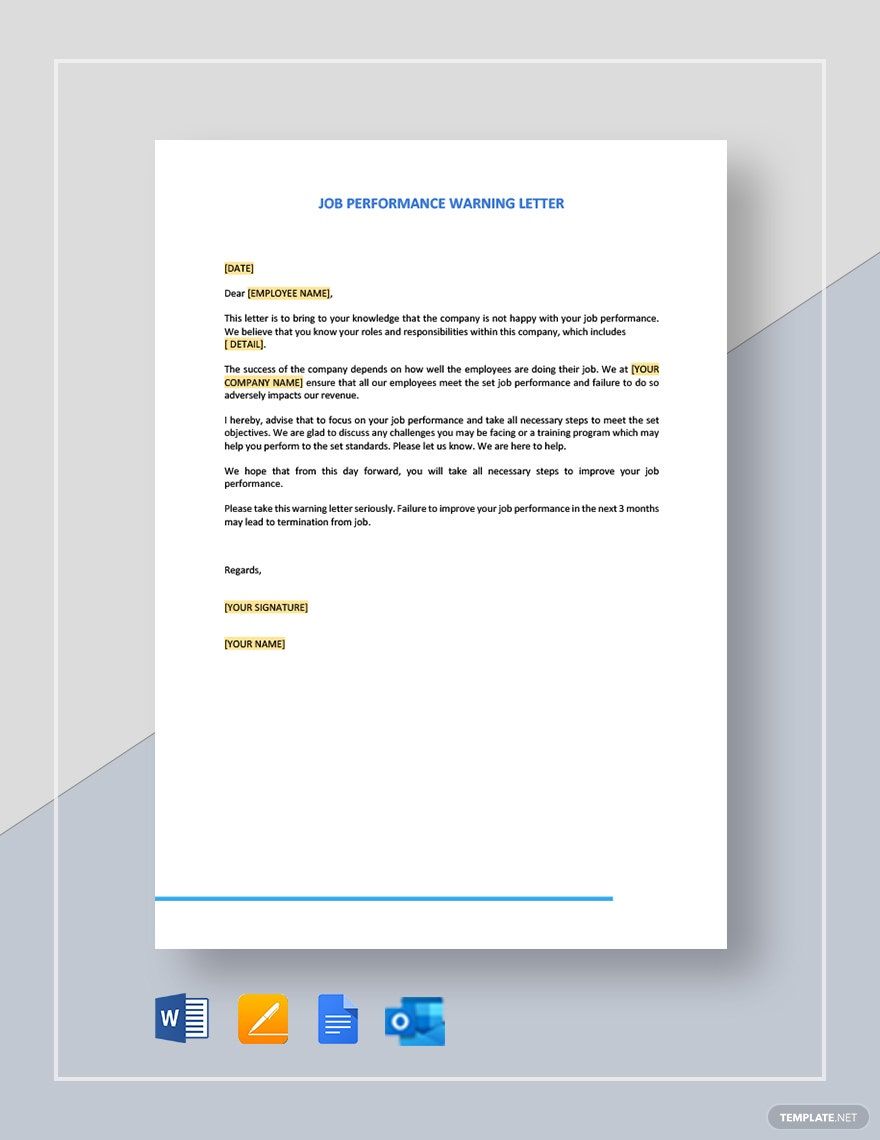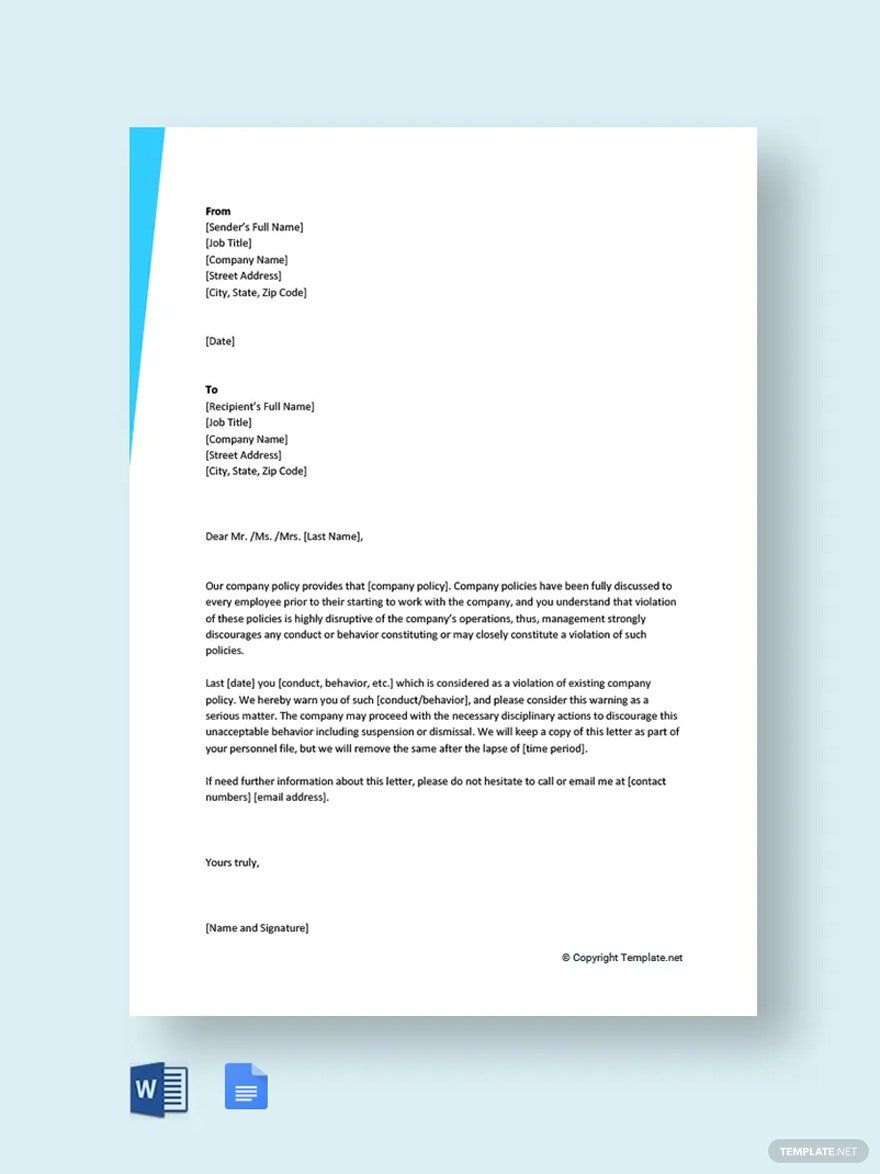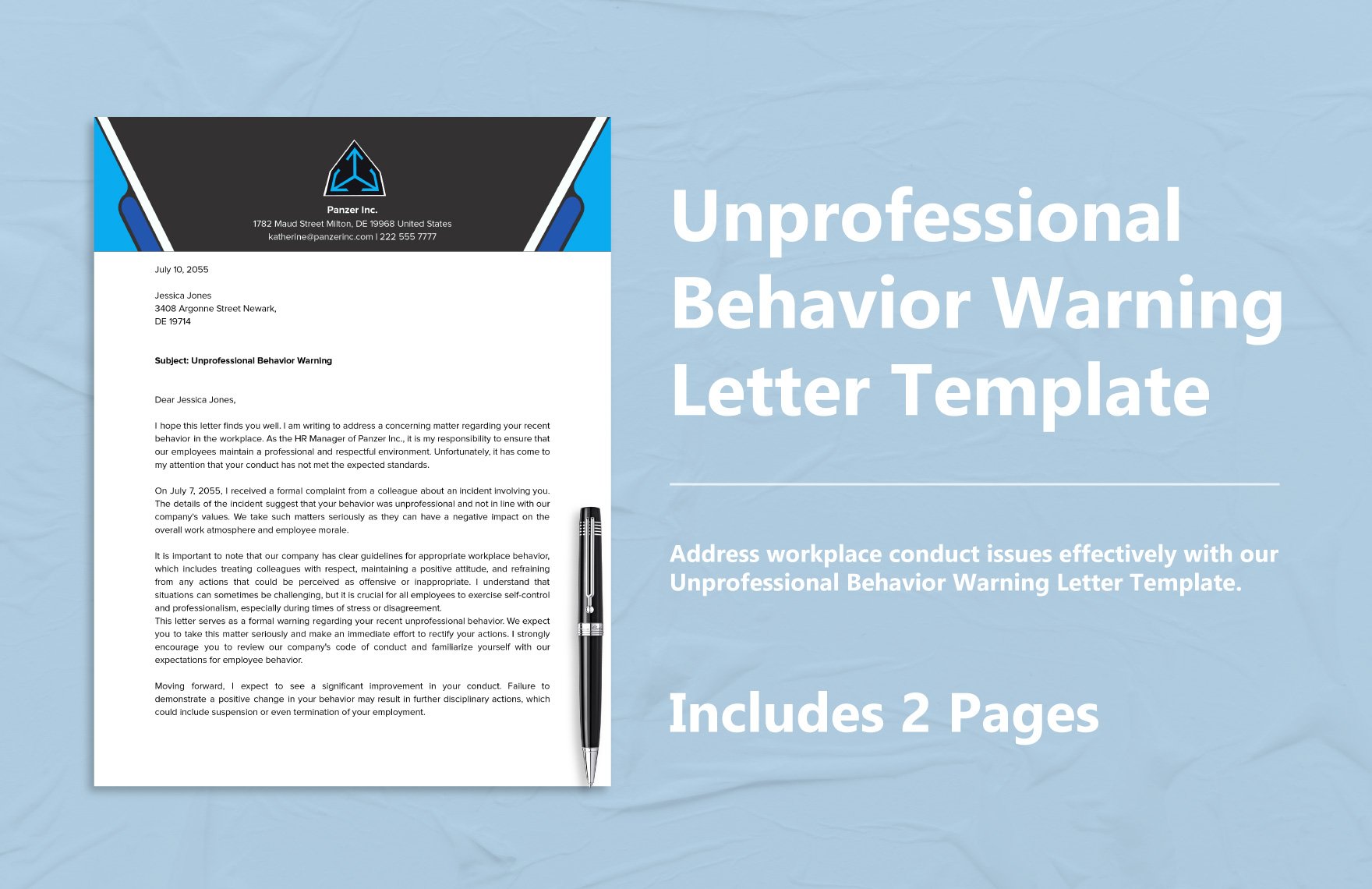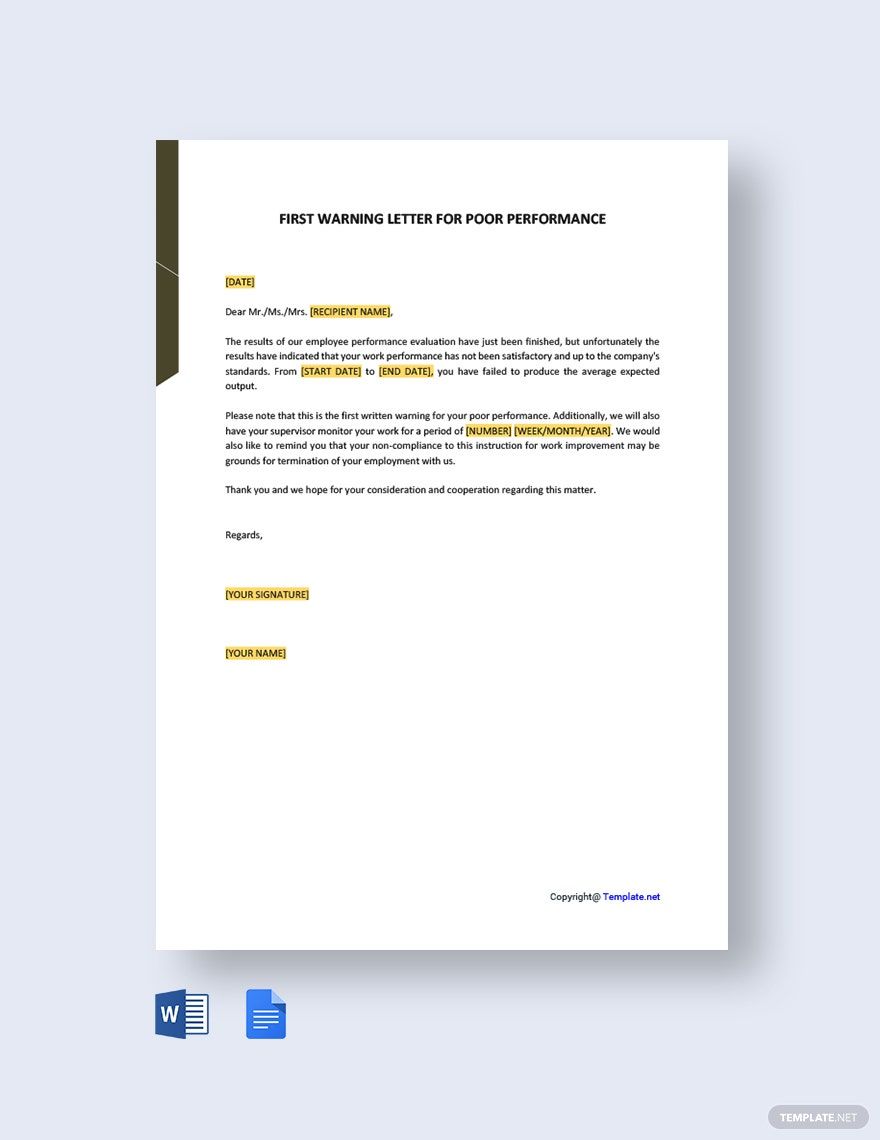A business won't thrive if all employees don't exert the same effort over a period of time. The employees performing poorly must be warned. Write that letter quickly with our Performance Warning Letter Templates! Each template is 100% customizable and printable in this collection. With our templates, you don't need to start from scratch. Edit the pre-written content to craft the letter in a way that fits your requirement appropriately. Sign up, subscribe, and start downloading now!
What is a Performance Warning Letter?
A performance warning letter is a letter that managers write to warn employees of their poor performance. This letter serves as a disciplinary action towards an employee.
How to Write a Performance Warning Letter?
Every employee has their individual strengths. Some exert more effort than needed while some don't try at all. To formally address this situation, write a performance warning letter. Read our tips below.
1. State the Employee's Information
Start with salutation and greetings, state the employee's company information. Write his/her name, designation, length of tenure, and ID number. You can also include his schedule at work to give further information.
2. Point Out the Problem
This is where you write about the performance of the employee. Be honest and direct to the point. Point out the employee's poor performance by using facts and records without making him feel bad. Describe how his performance affects his work ethics and other people in the team.
3. Give the Warning
You have to warn the employee that maintaining his current work effort may deprive him of a performance appraisal. You may also include other consequences of poor performance that will surely affect the employee.
4. Prompt an Action
Ask the employee to reply to your letter immediately. There's always room for negotiation when it comes to poor performance. As a manager, you have to ensure that your staff gives their best to their individual tasks. And lastly, don't forget to keep a polite and formal tone when writing the letter.


